Marcin Wichary
19 November 2018 / 26 tweets / 50 photos
Berlin Videogame Museum
This is an archive of a Twitter thread from 2018. I have since deleted my Twitter account.
What I really admired about the Videogame Museum in Berlin is that they didn’t stop at cheap nostalgia, or simply trying to recreate an arcade parlor or a mancave. They went much further than that. They managed to put together the biggest celebration of videogames I’ve ever seen.

Sure, there were displays of old hardware like this, and artifacts strewn around to remind you that You Were Young Once.
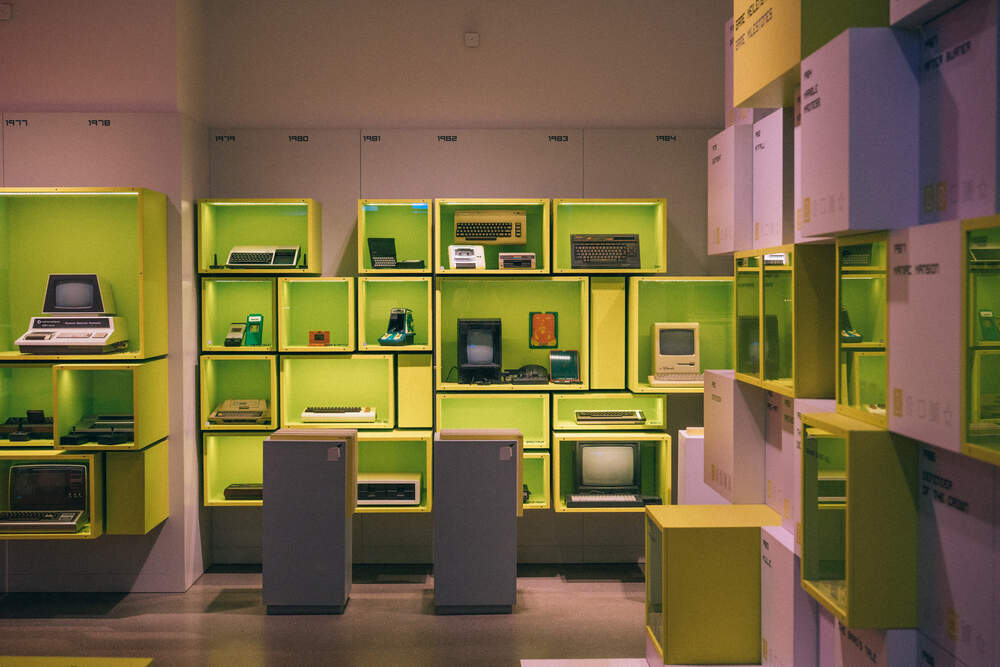
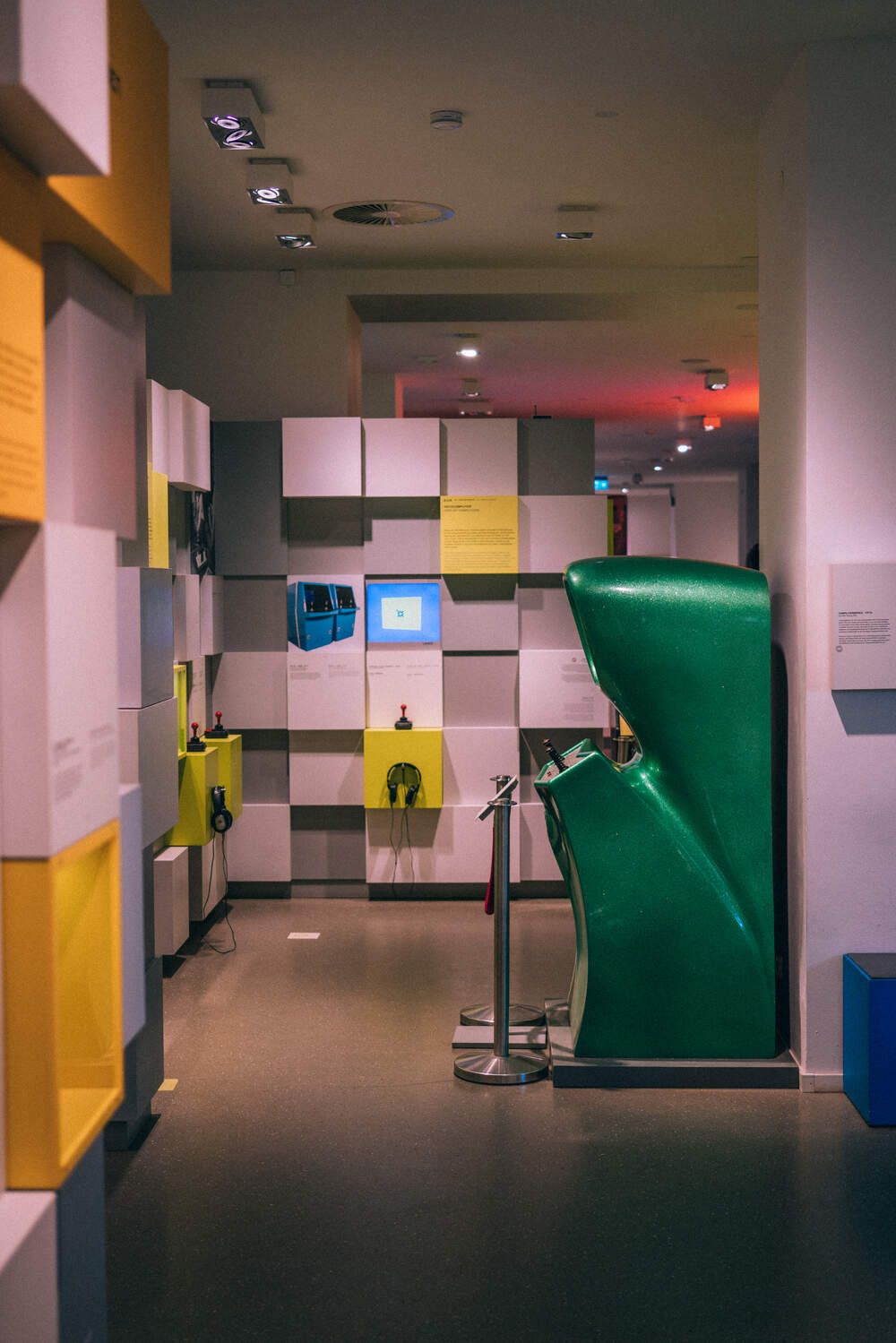
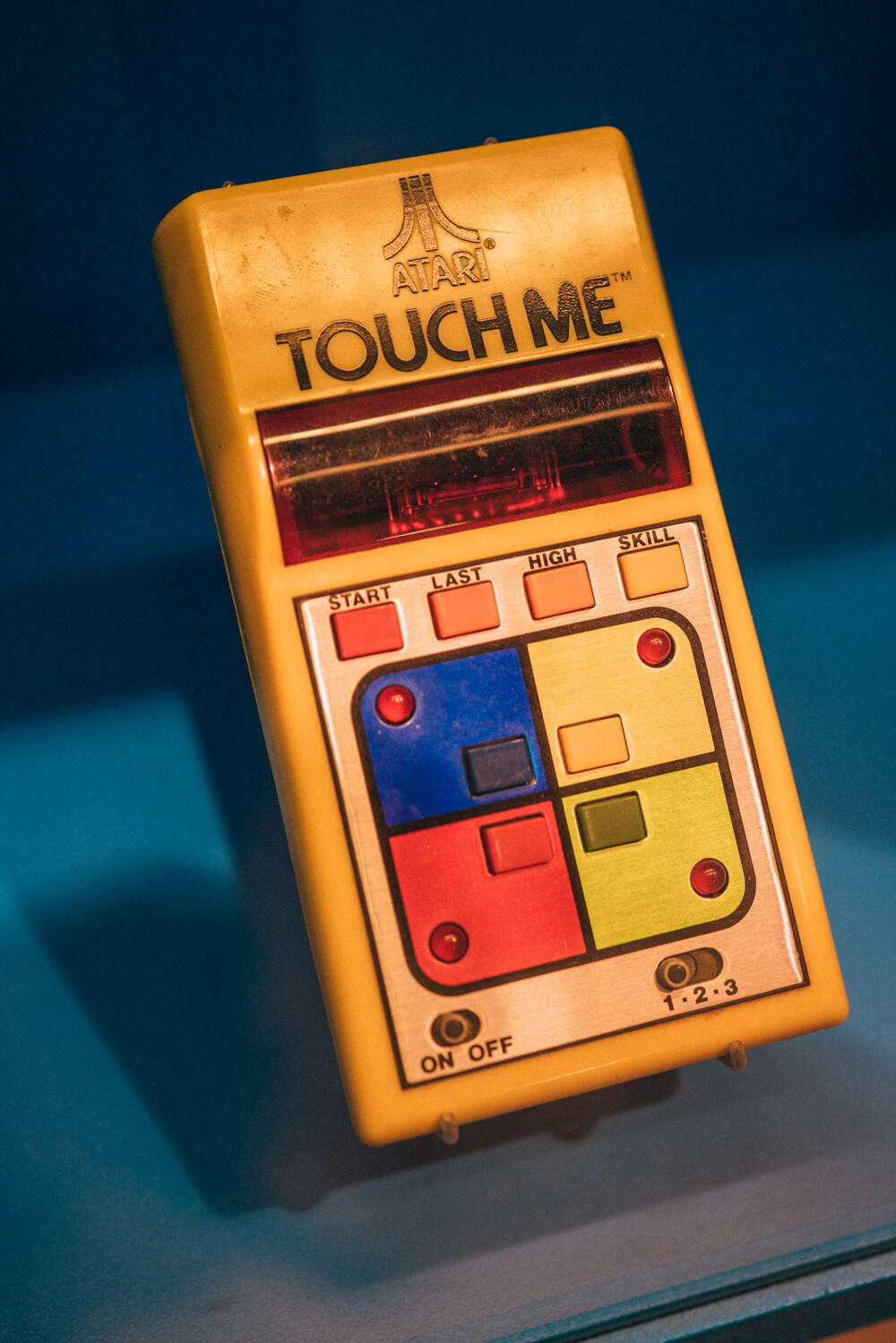
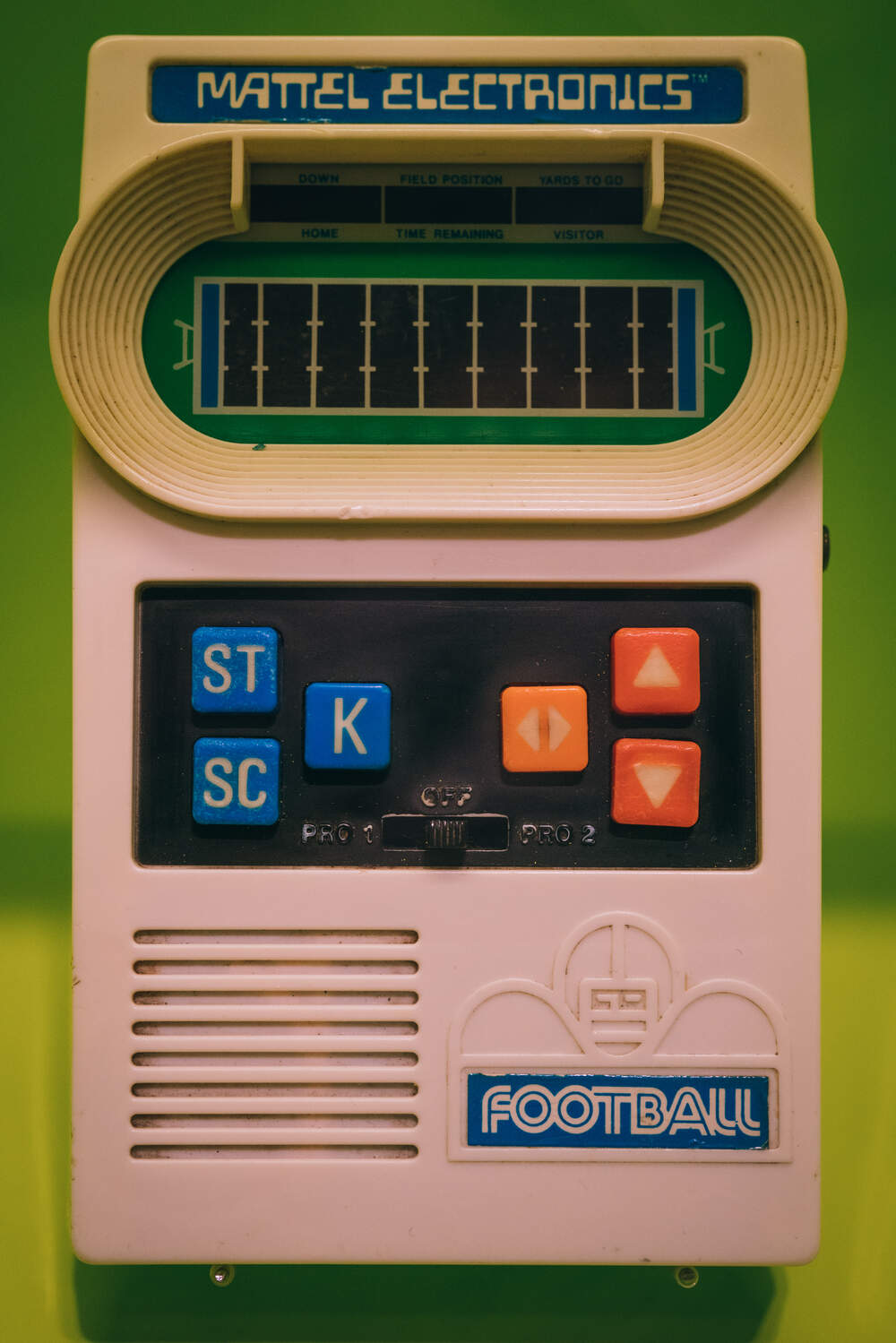
But soon, I realized that there was much more. First hint: The old Pong machine had its innards exposed, because – well – weren’t you always curious?
And you could still play it in that state! (Which actually felt a bit weird.)
And you could still play it in that state! (Which actually felt a bit weird.)
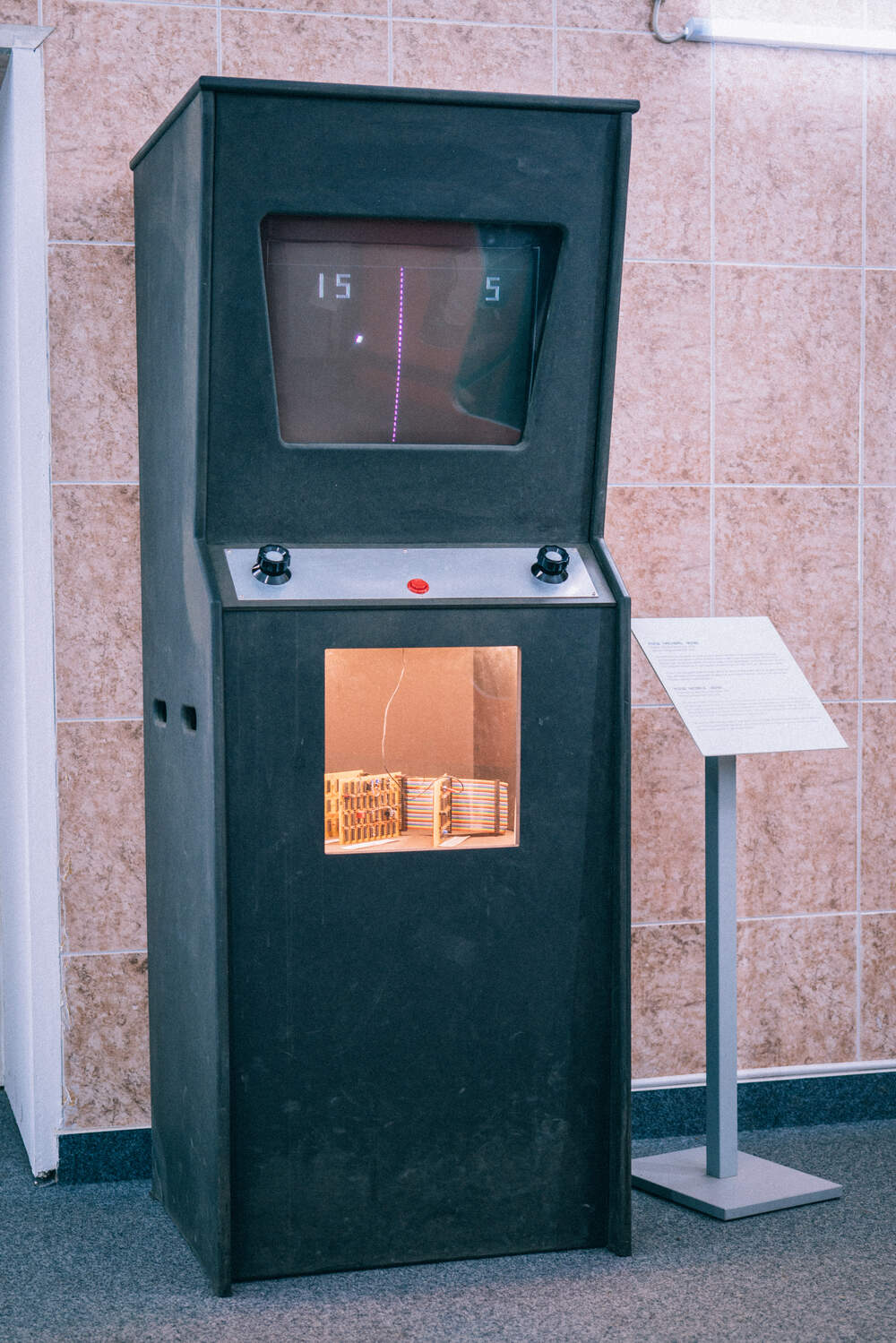
It wasn’t just old games – right next door, I sat down and played the entirety of The Stanley Parable, a game I’ve always wanted to try.
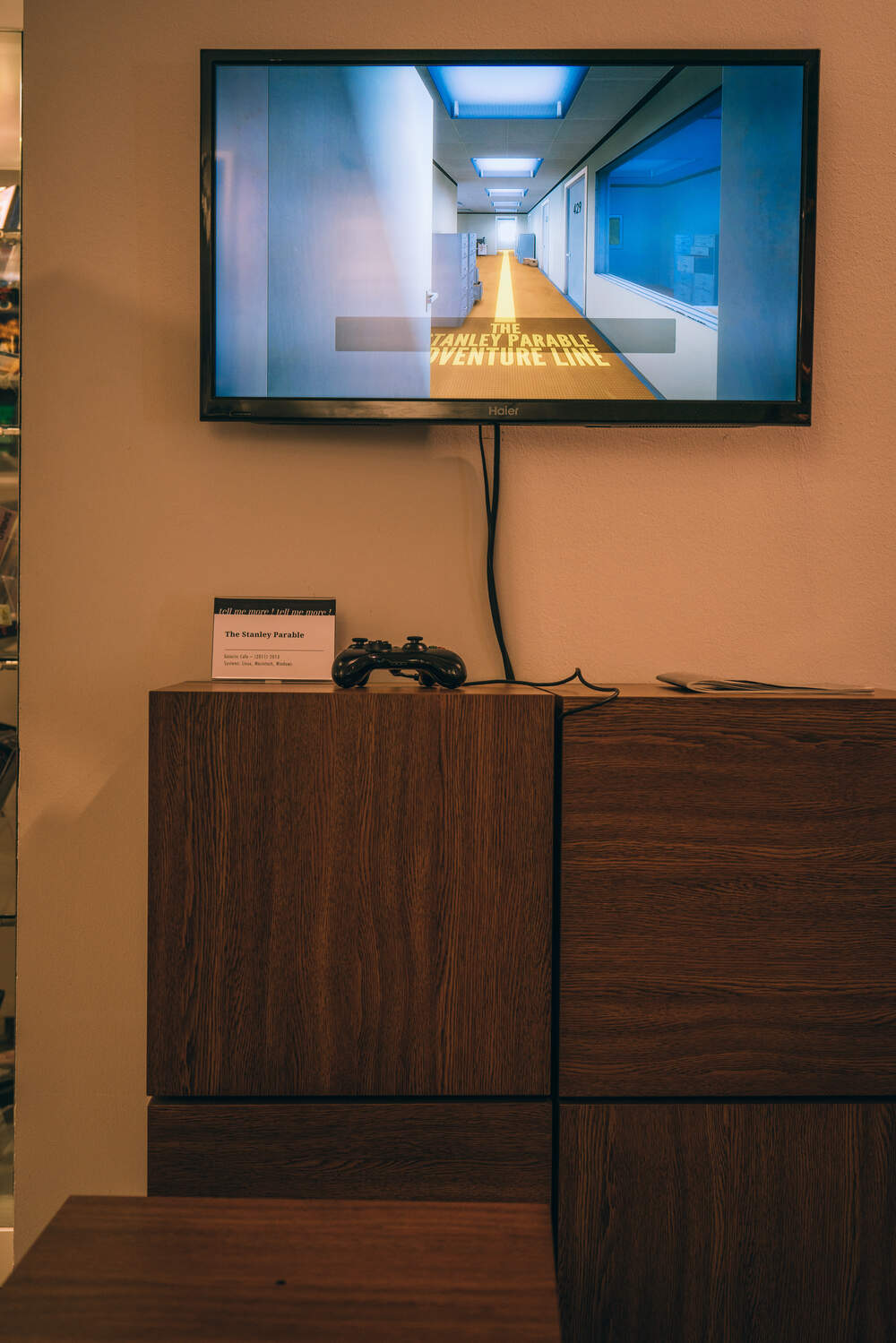
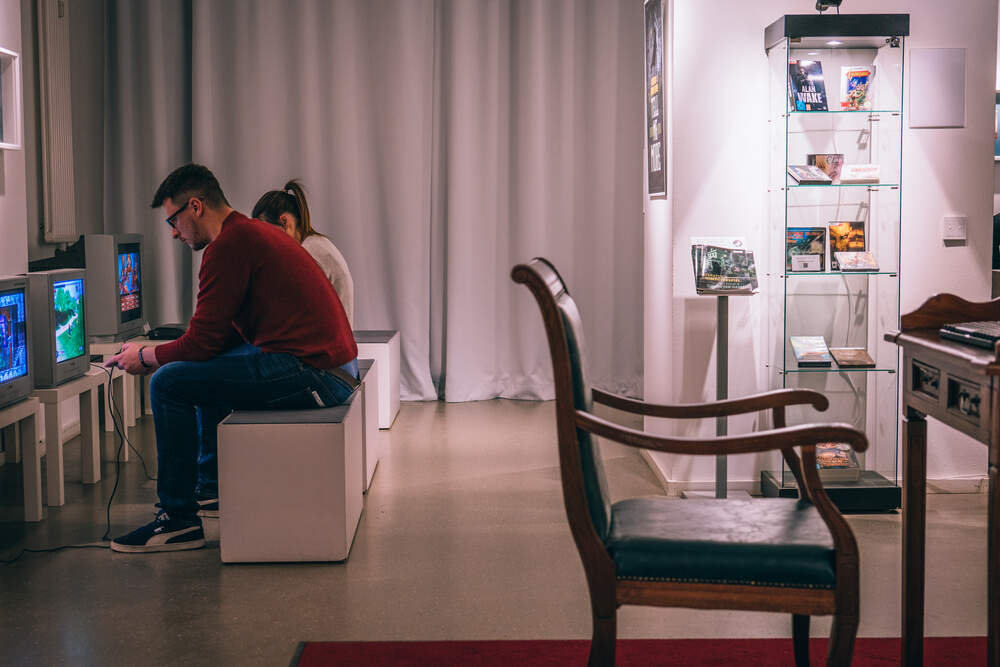
There was the understanding that games can be so much more to people. In one area, there were small rooms recreating gaming spaces in the 1980s and 1990s,
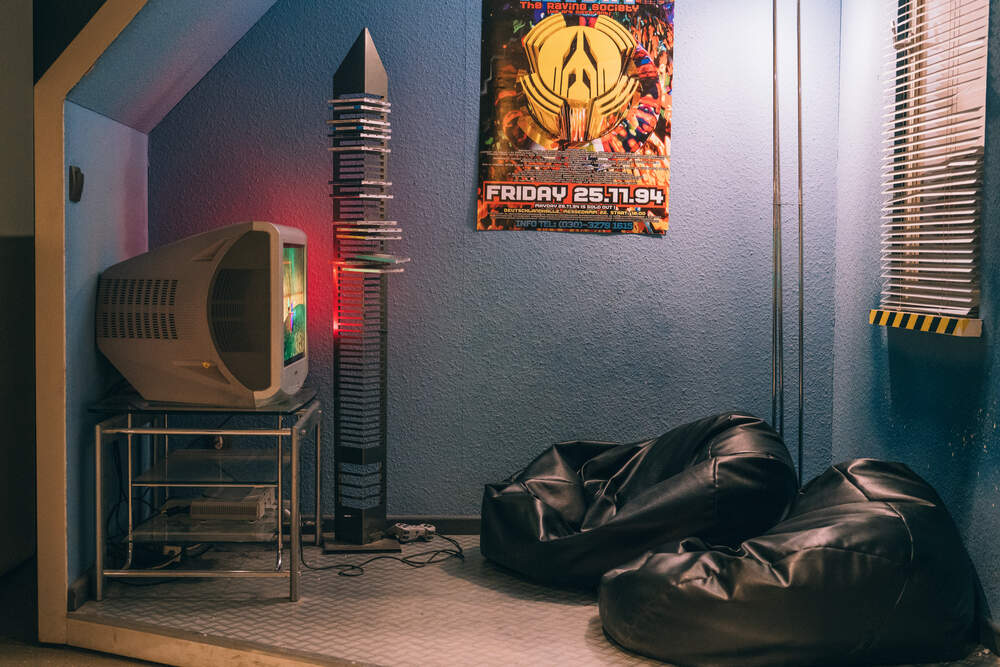
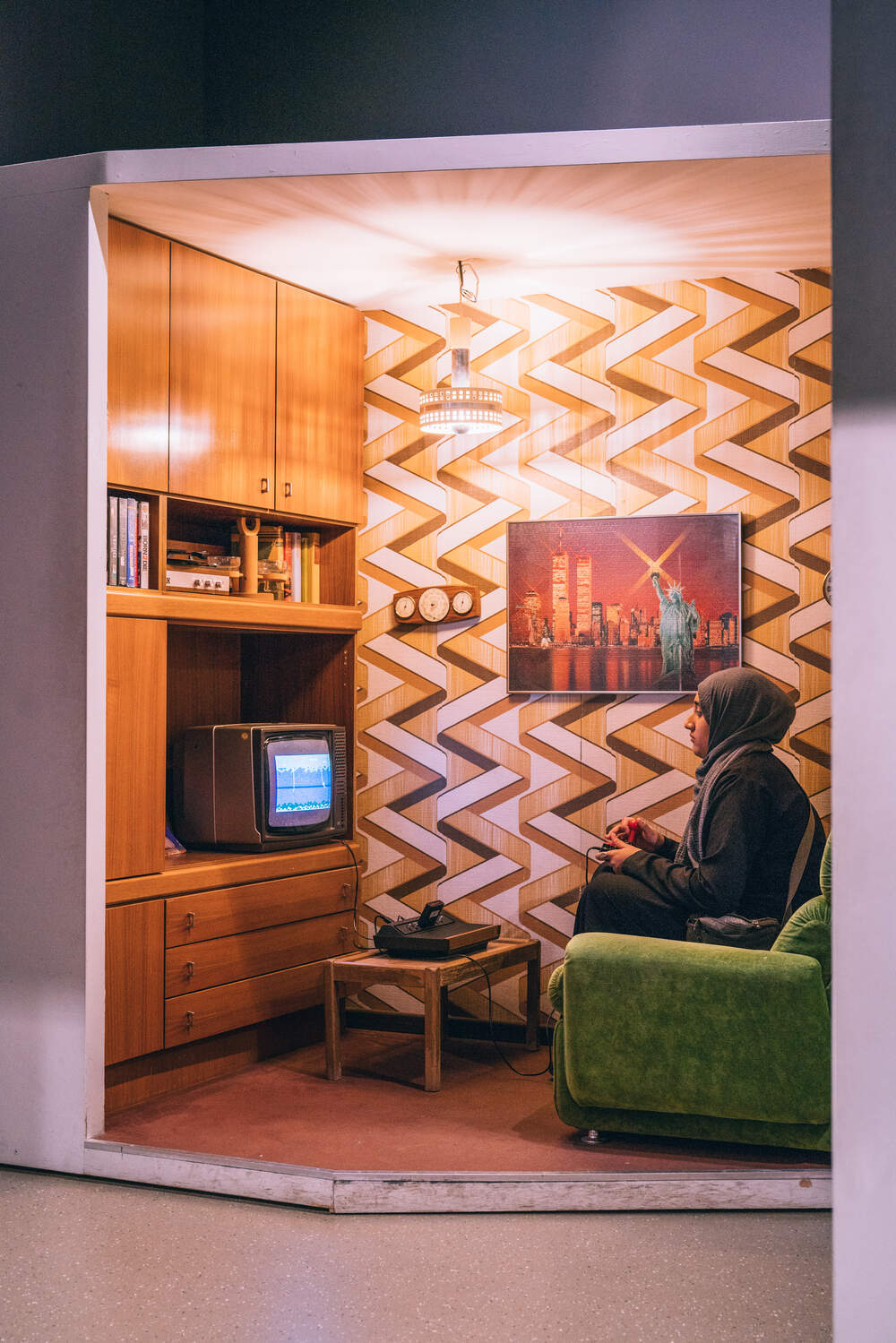
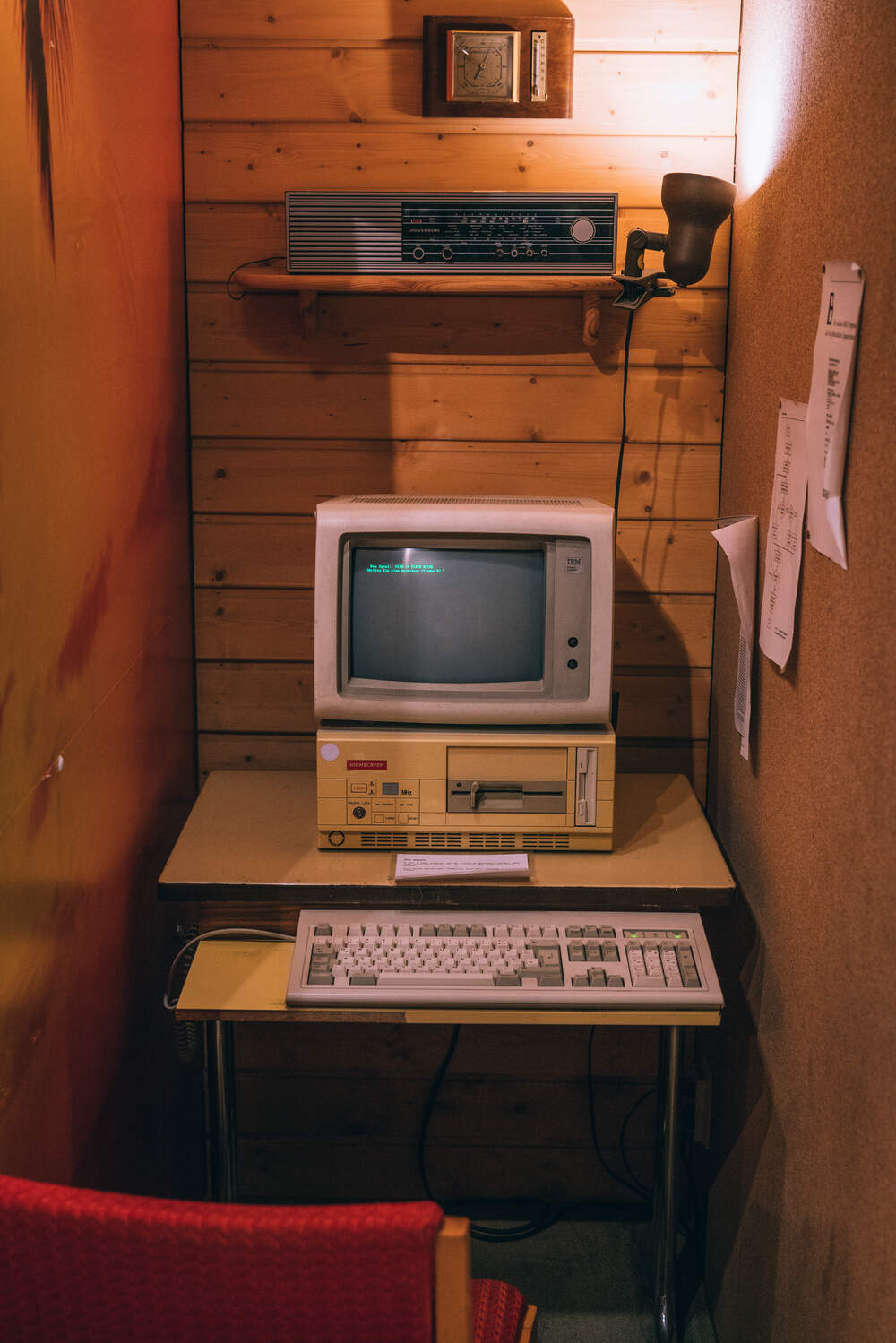
…at times in astonishing detail.
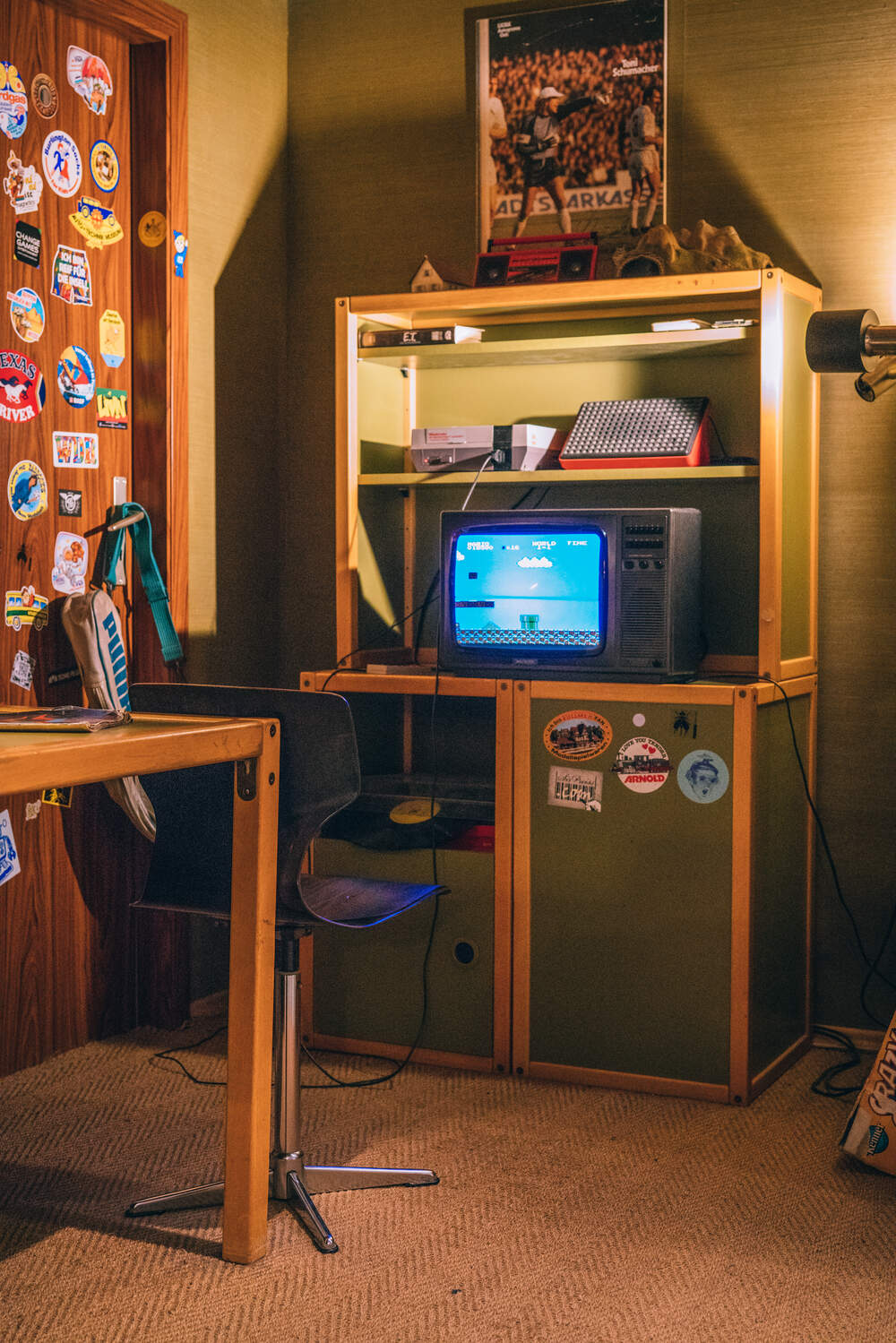
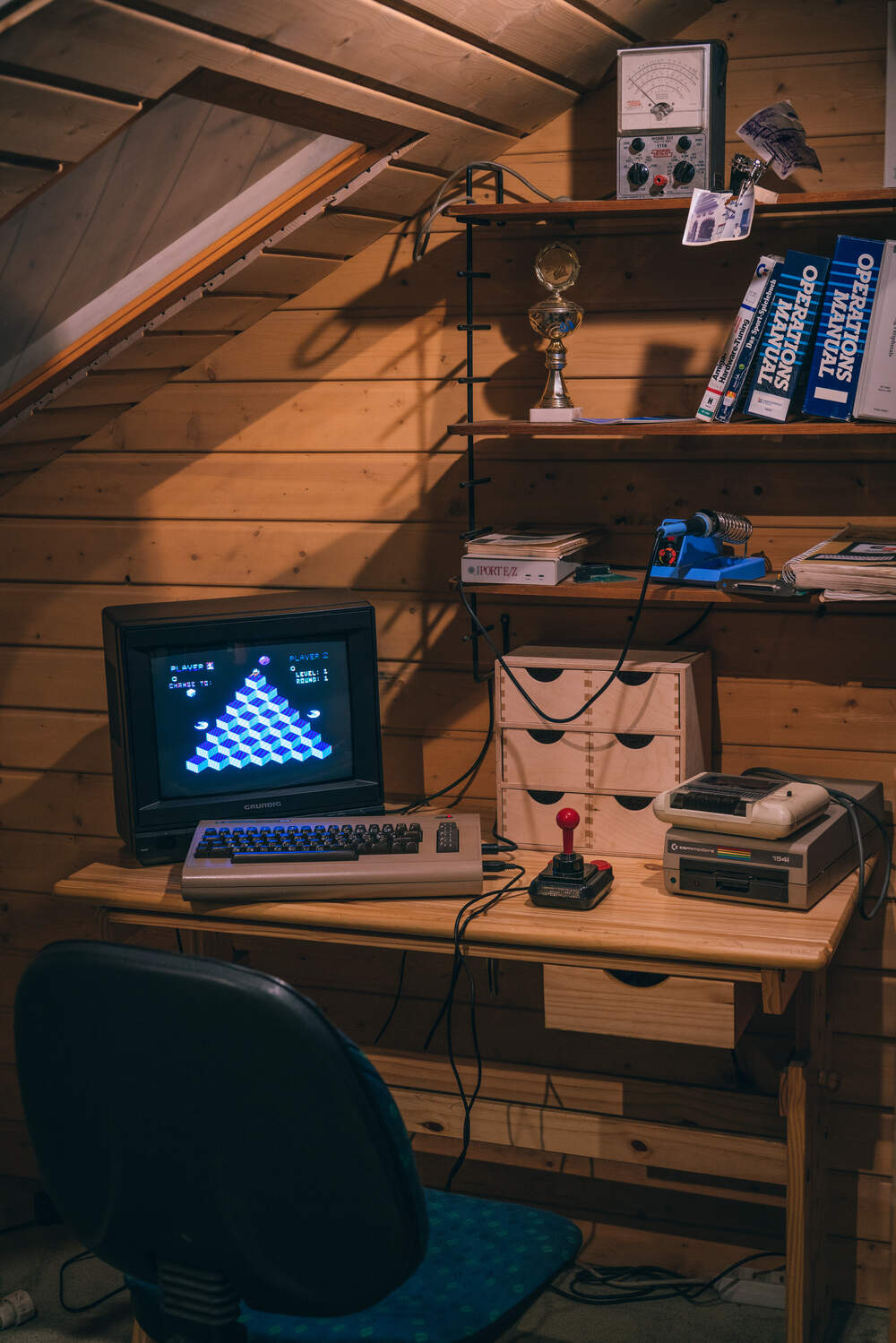
(All of these you could just sit down to and play with!)
There was also a small penny arcade filled with a bunch of videogames.
And again, just this one little detail – a physical list of high scores – told me the creators understood how these spaces functioned outside of just hardware + software.
And again, just this one little detail – a physical list of high scores – told me the creators understood how these spaces functioned outside of just hardware + software.
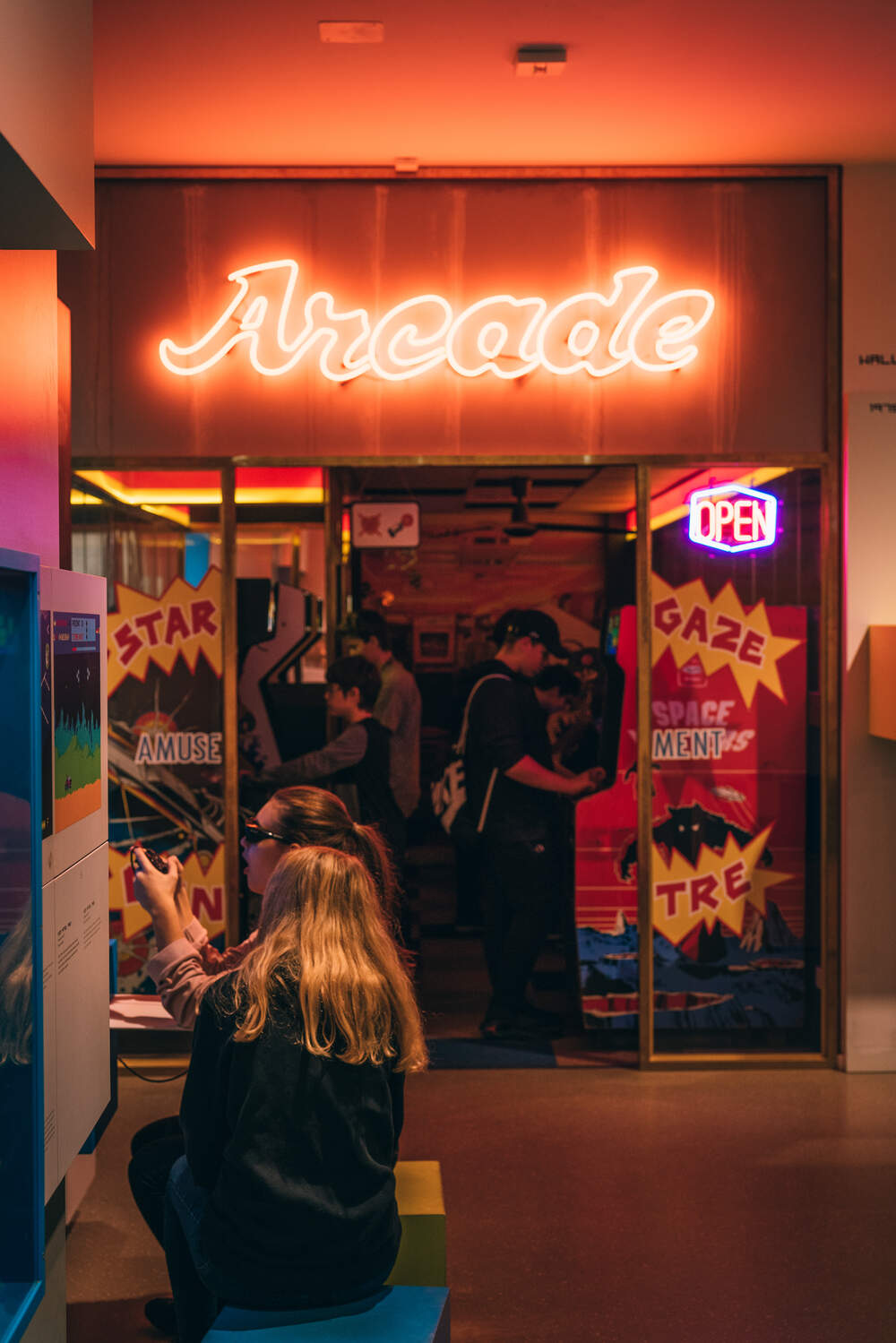
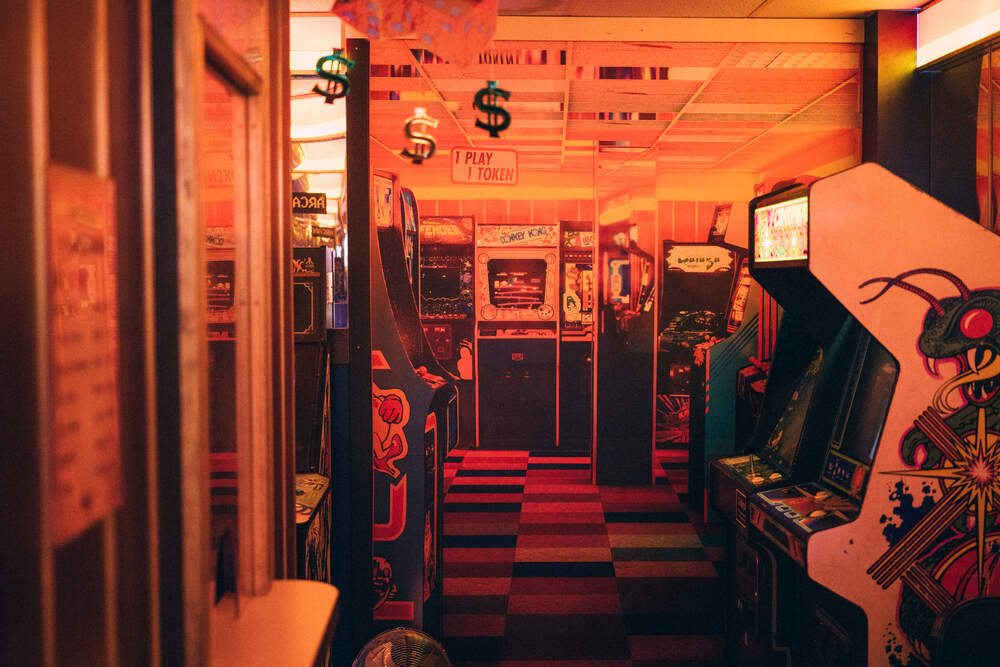
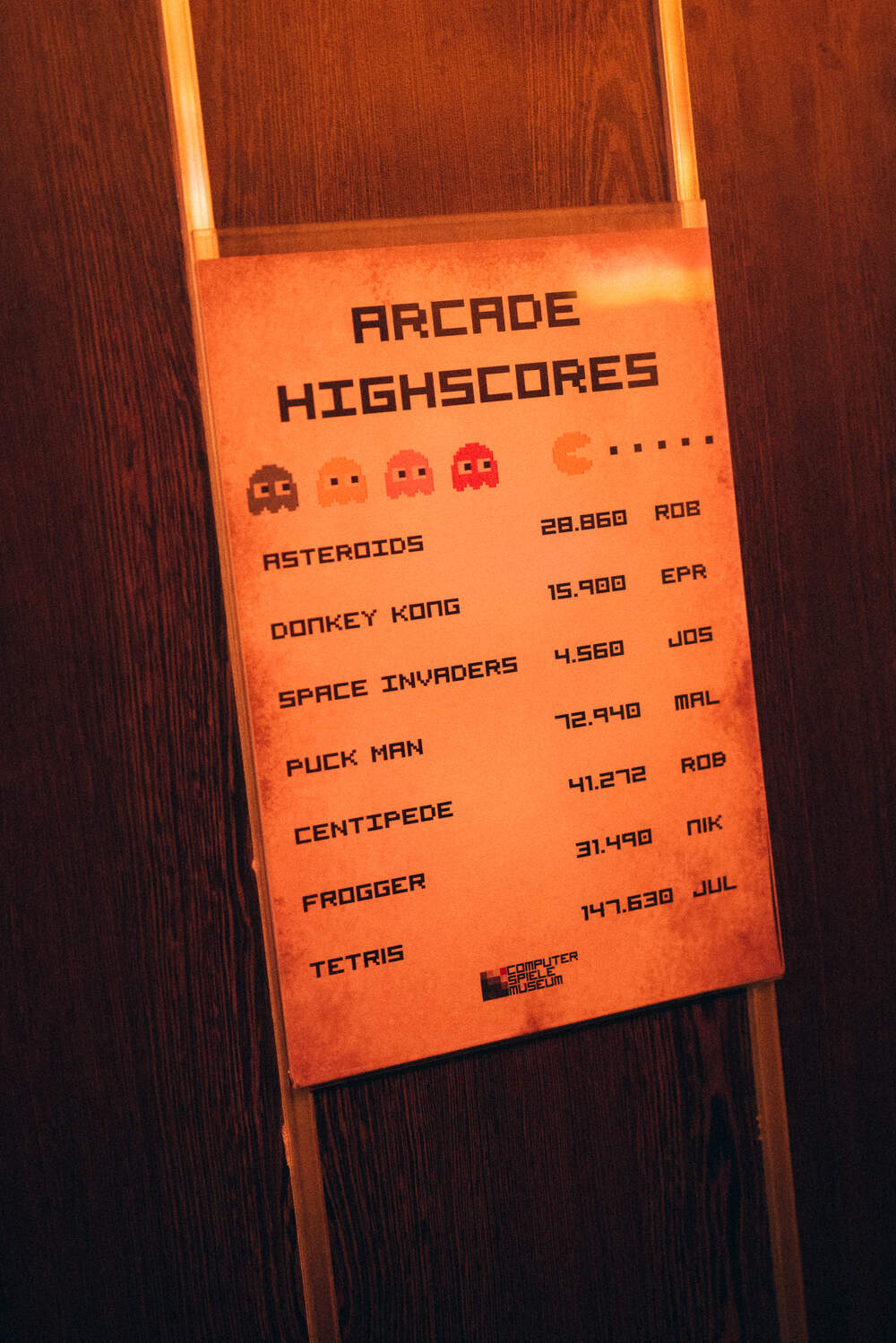
There were a bunch of other distinctive spaces, too, and after a while I realized that this whole place felt a bit like… a game itself.
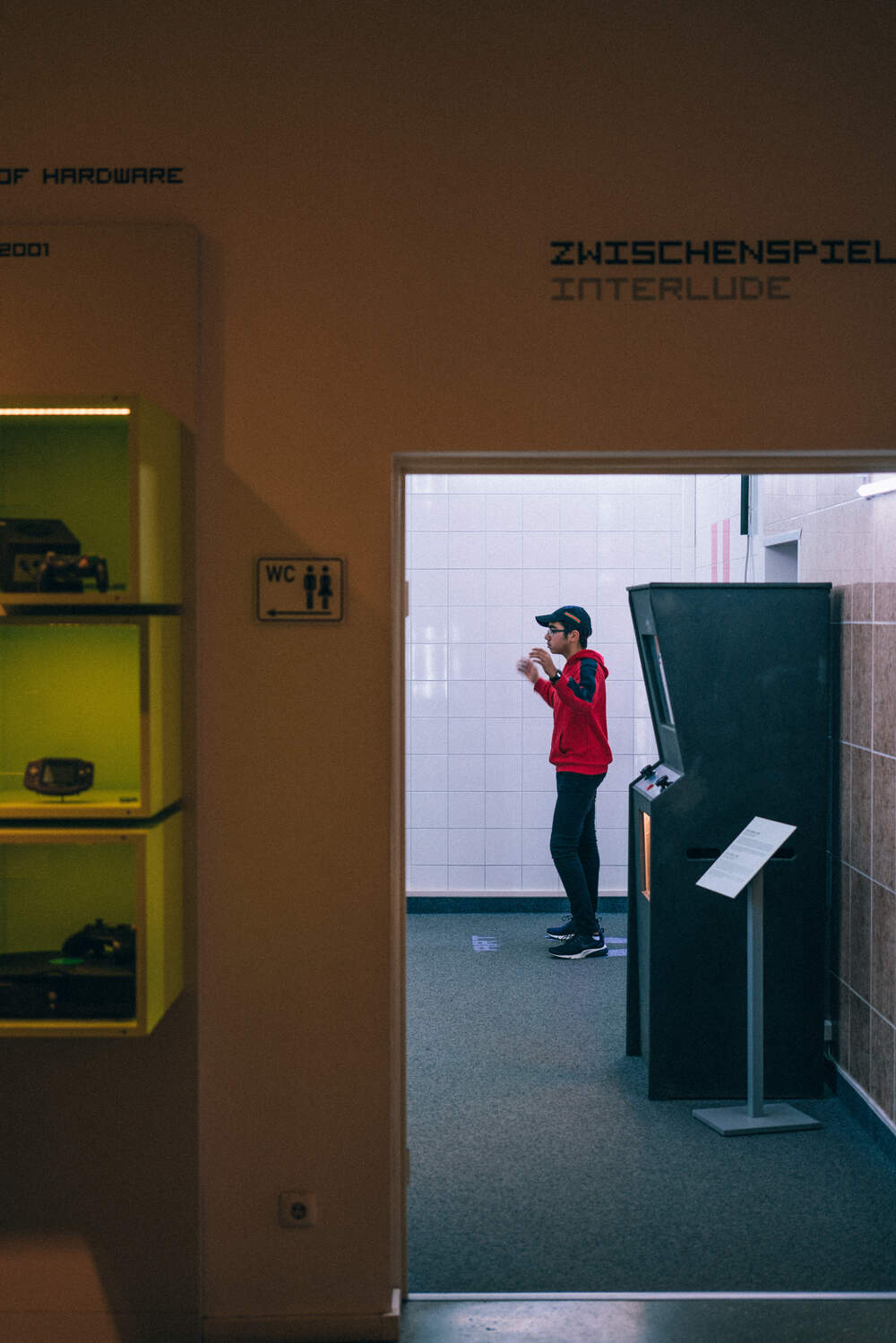
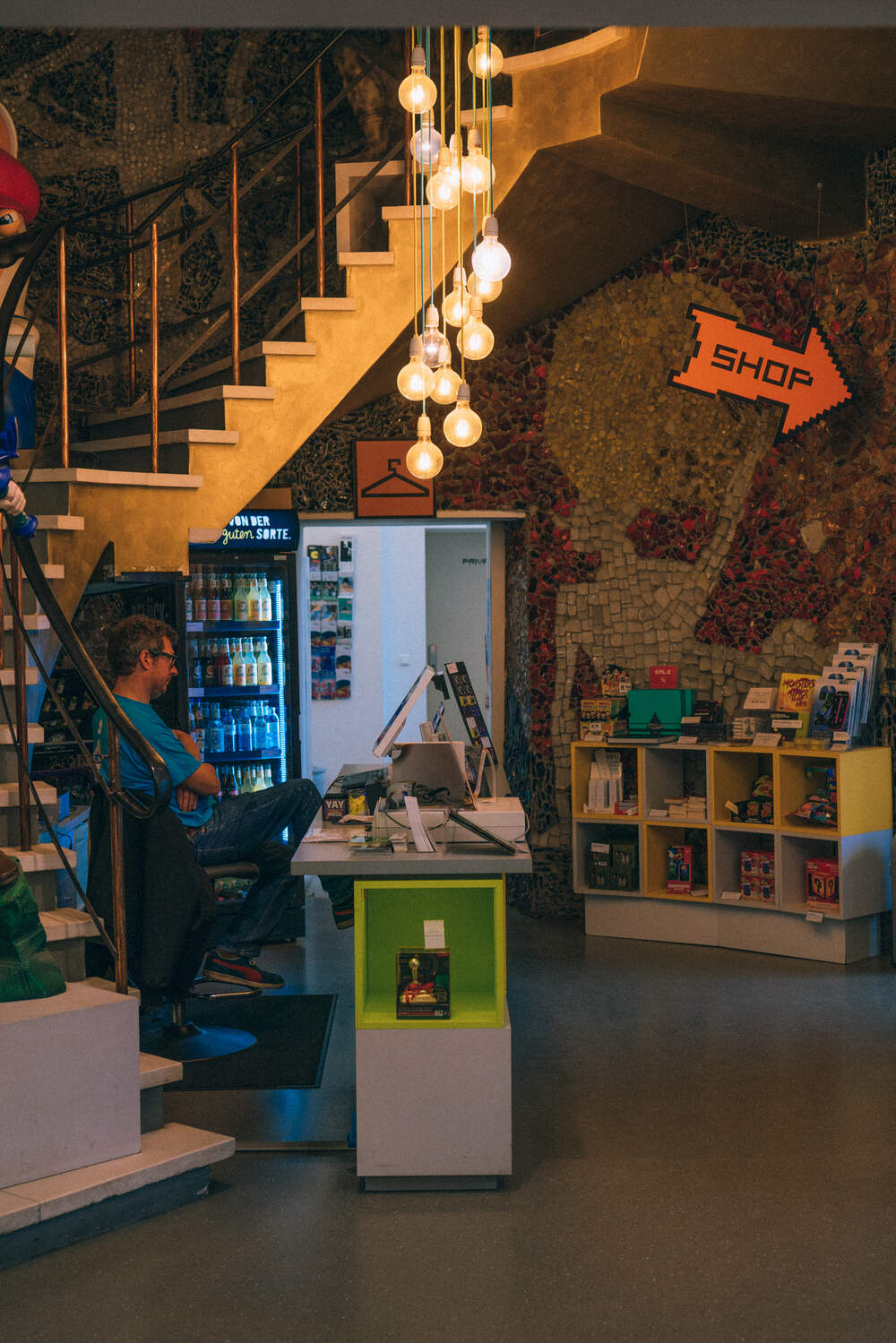
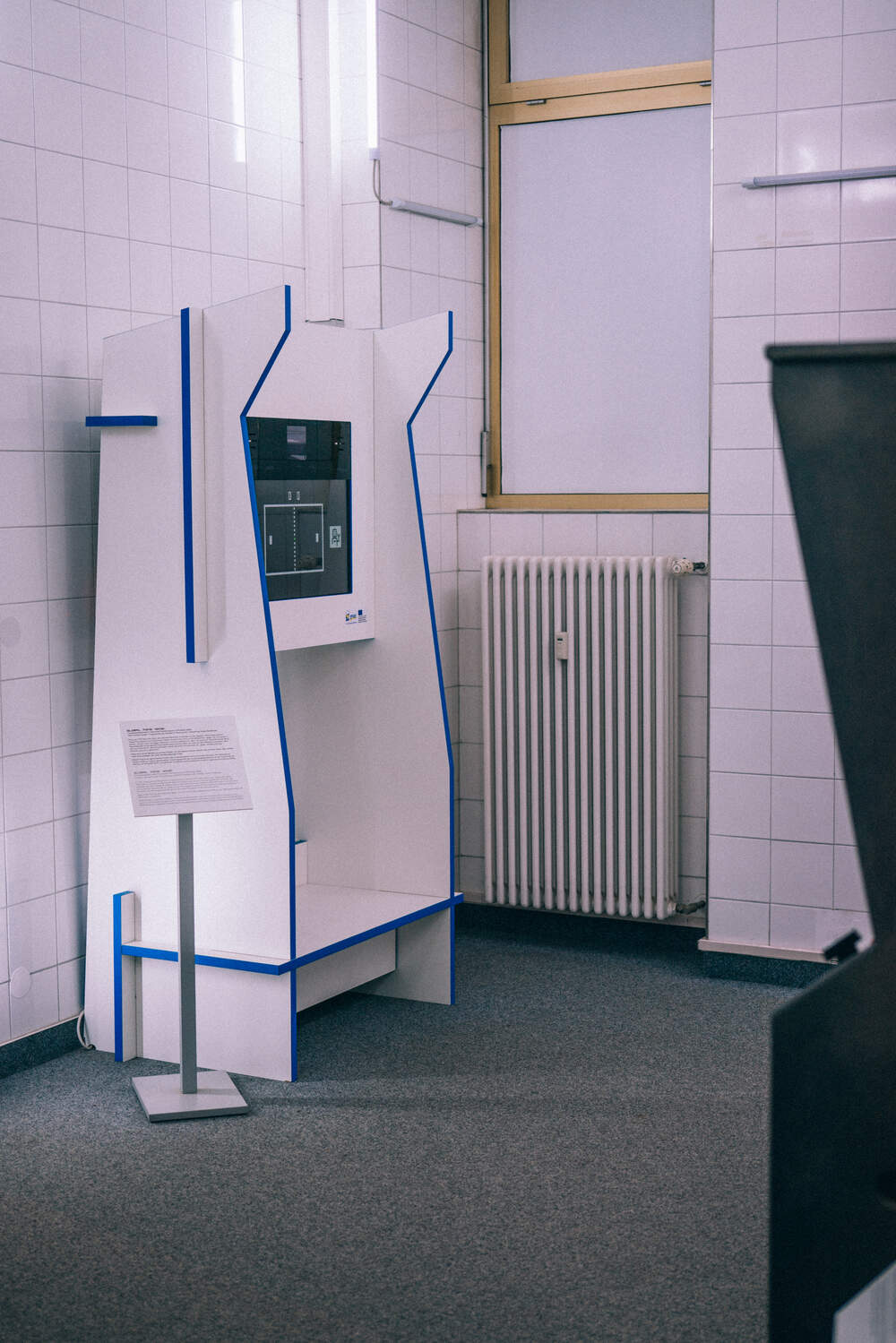
Some of the exhibits were haunting and thoughtful, like this meditation on the nature of play: four computers playing by themselves, forever.
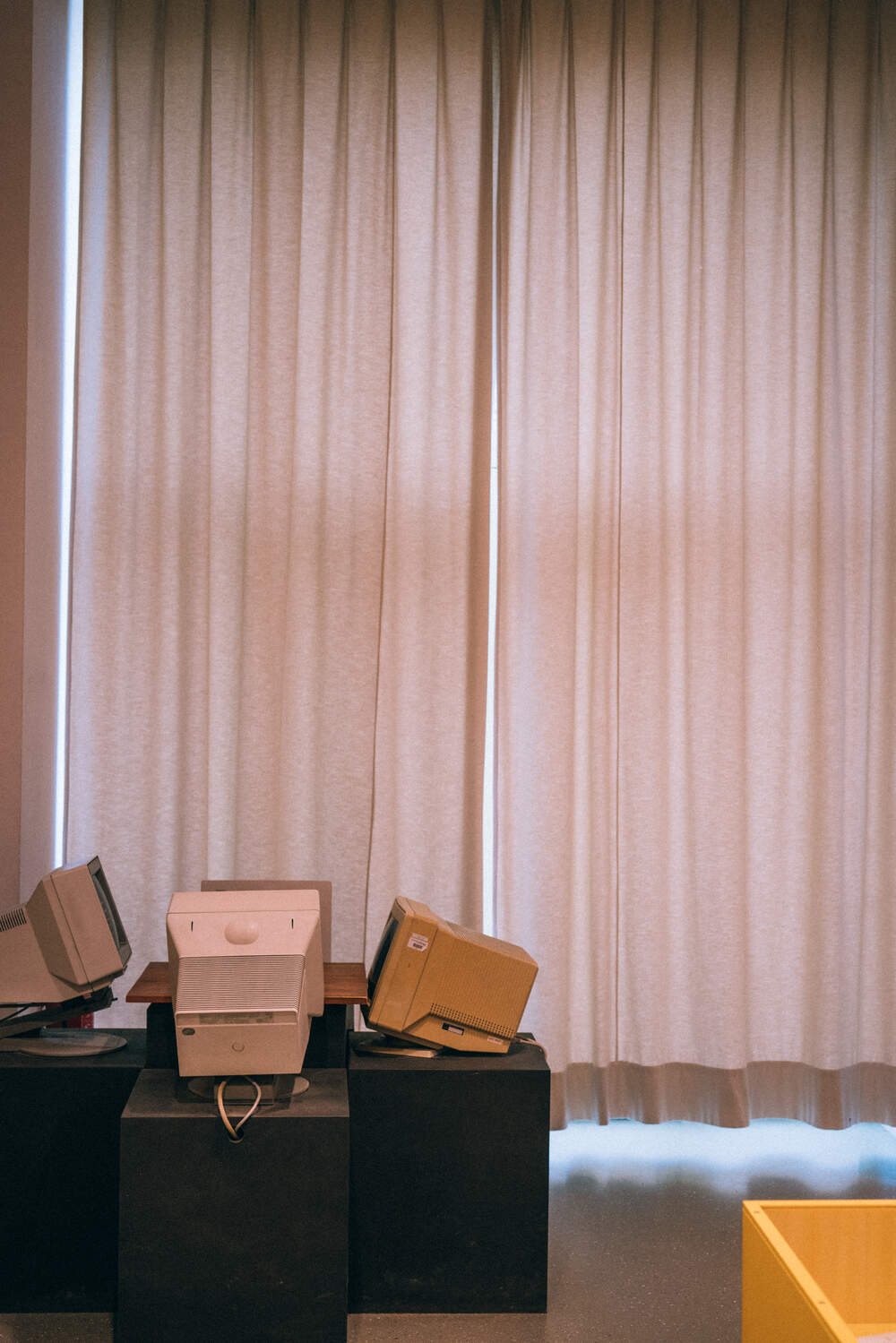
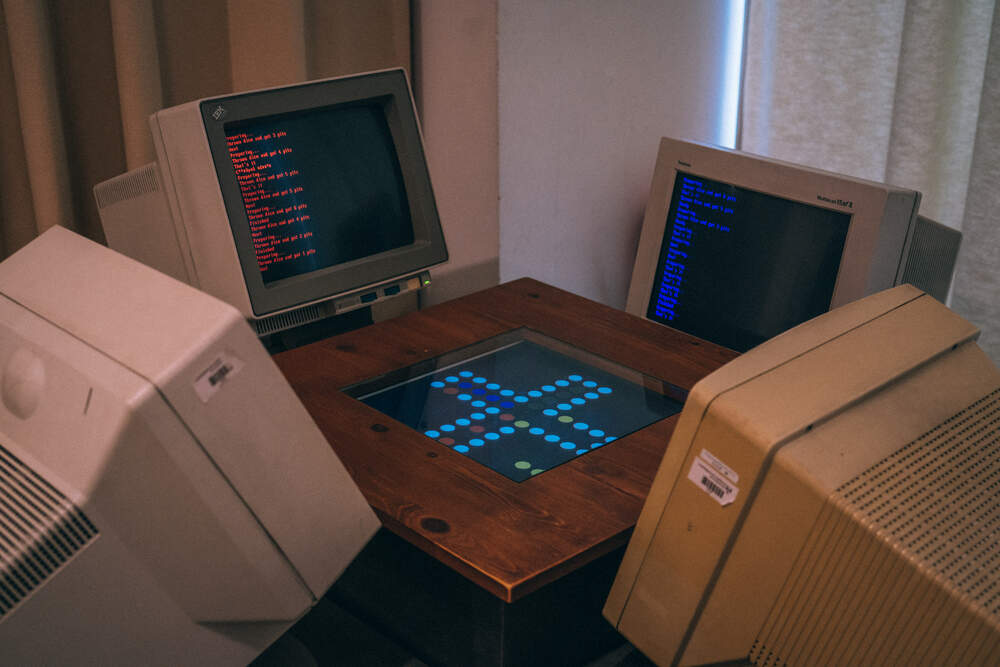
Does play have to be fun? In one of the corners sat that one game that would actually hurt you. (More info: PainStation)
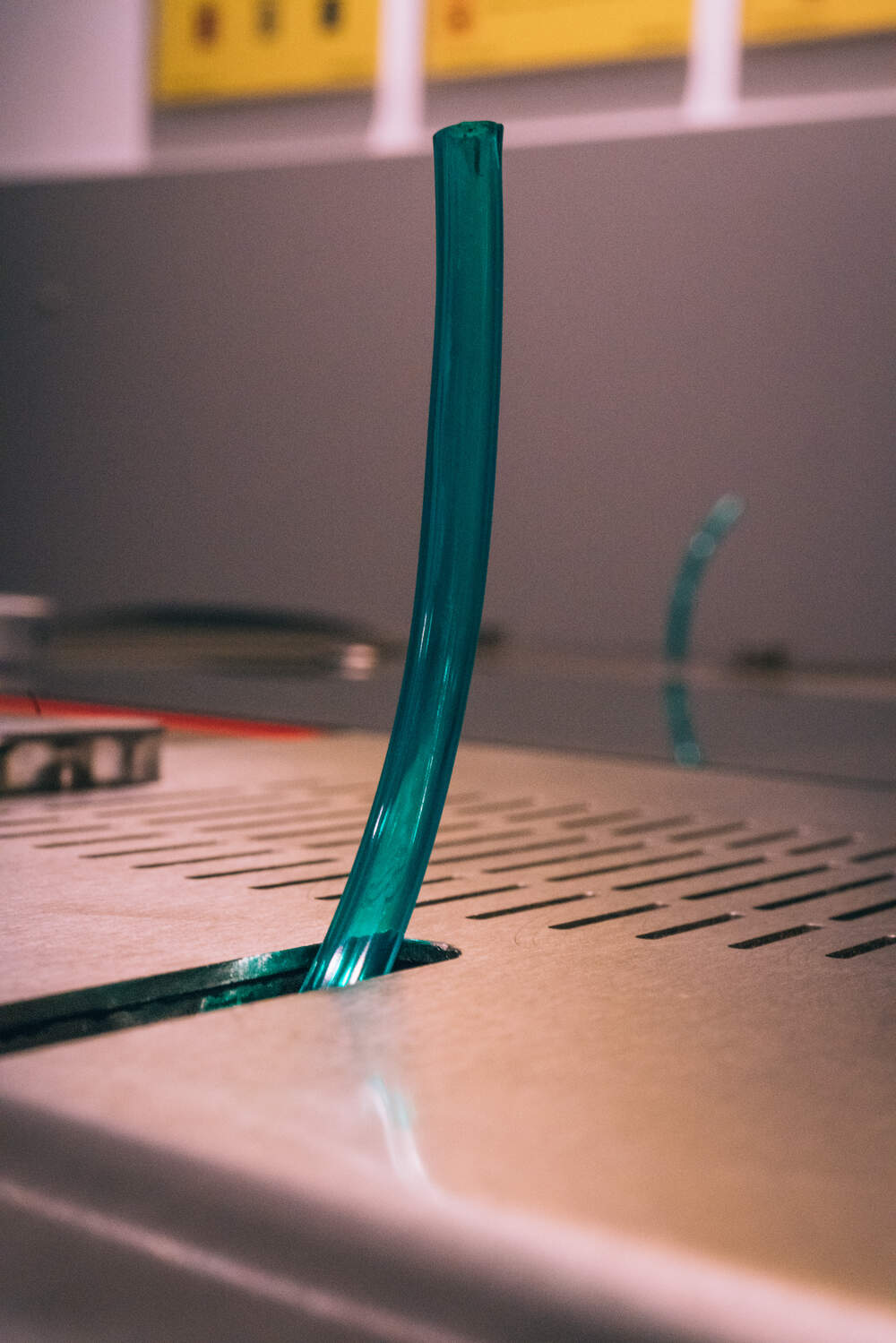
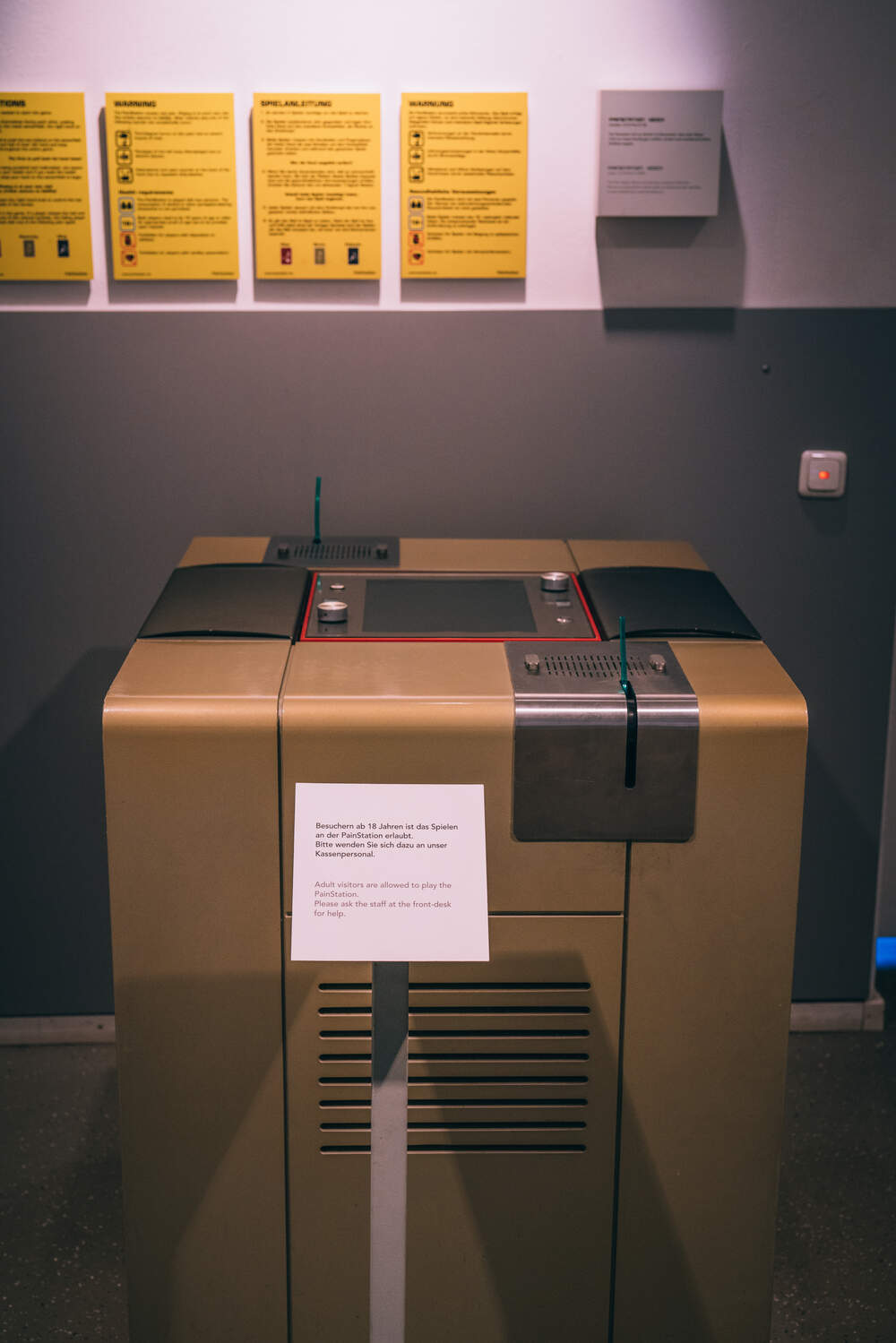
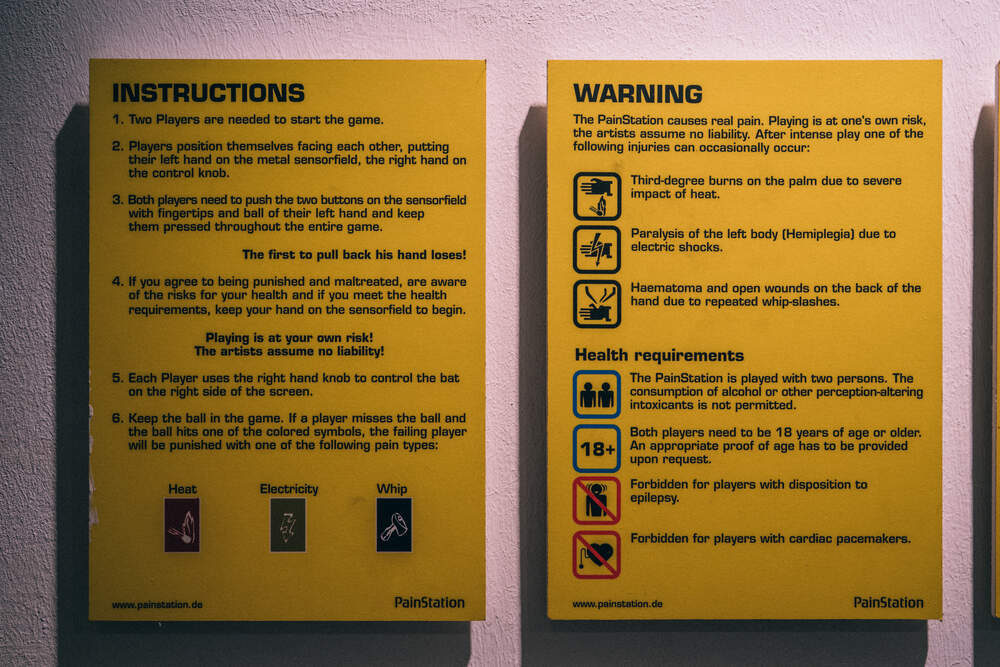
There was also the area of videogames as a world of art unto themselves – for example one station allowed me to play the classic ROM Check Fail (which you can check out here: ROM CHECK FAIL).
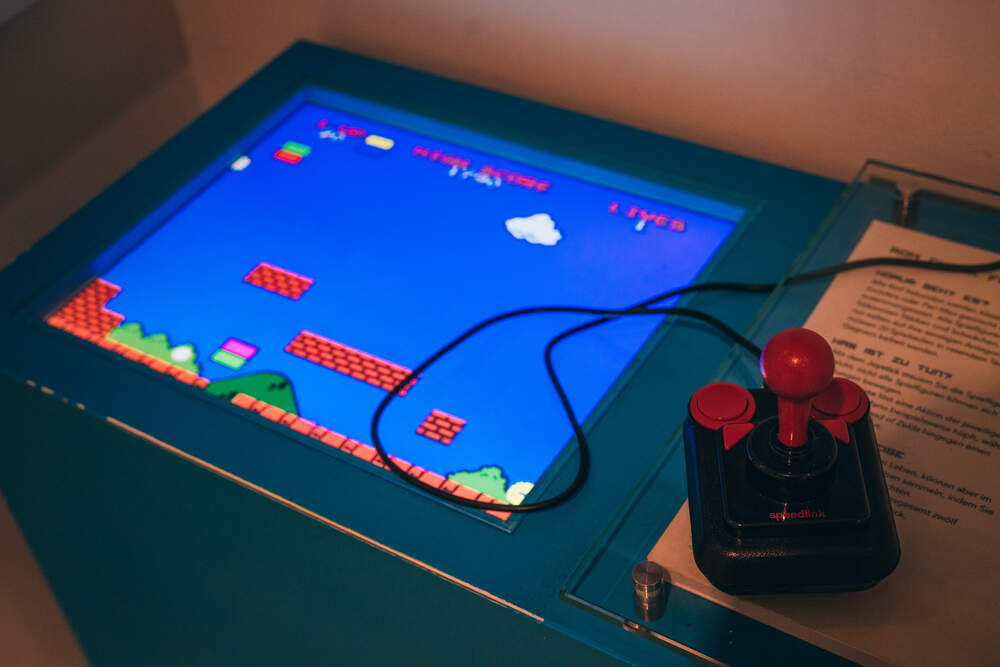
(Alas, no Multibowl! I’ve always wanted to try it: Multibowl)
There were areas that explored programming and gaming as forever intertwined, for example with the simulation of an old Ferranti computer and a very simple early game.
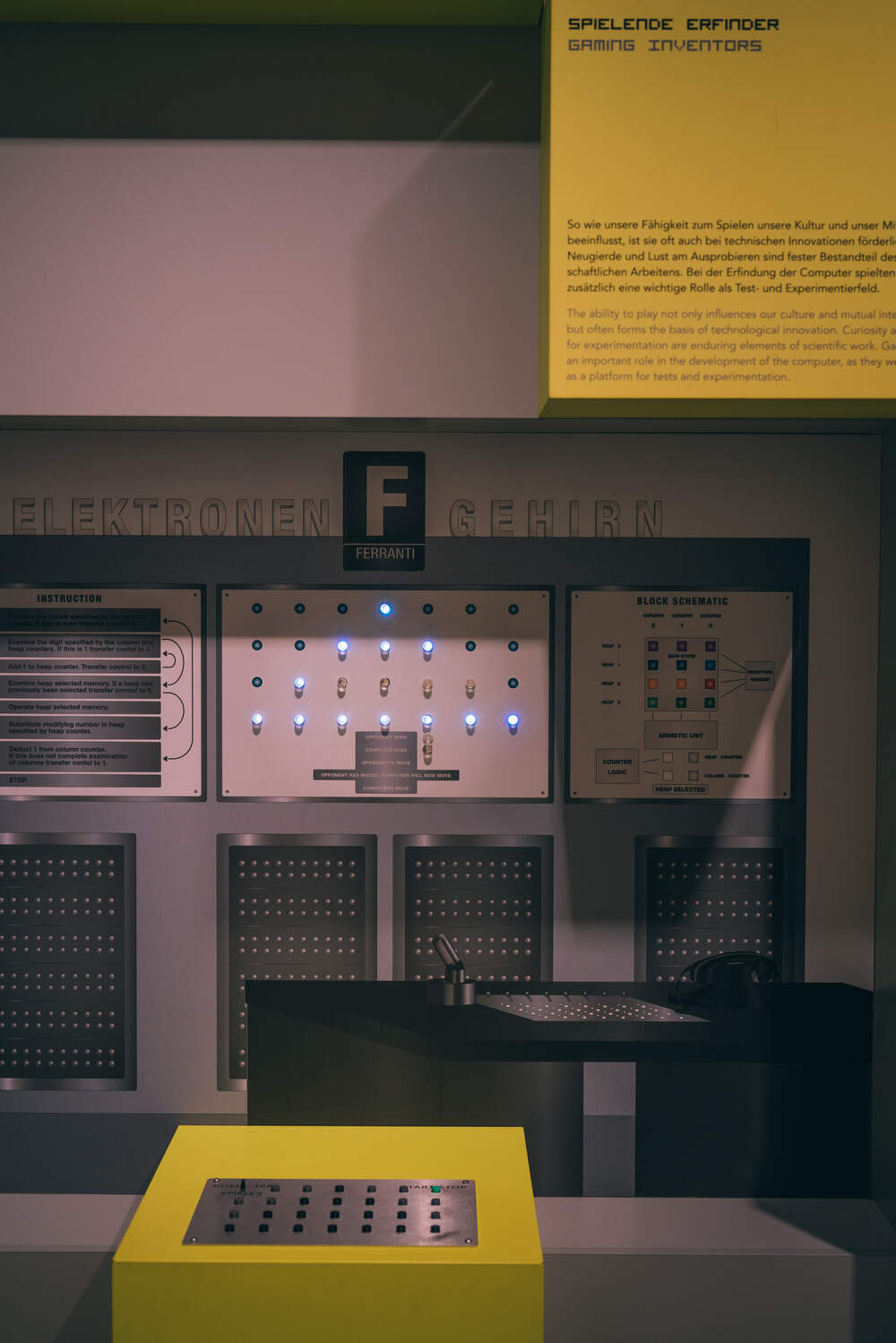
I was also delighted to find a station with ELIZA (which I just talked about at a conference!) – it was particularly interesting to come back to it once in a while and see what other people typed:
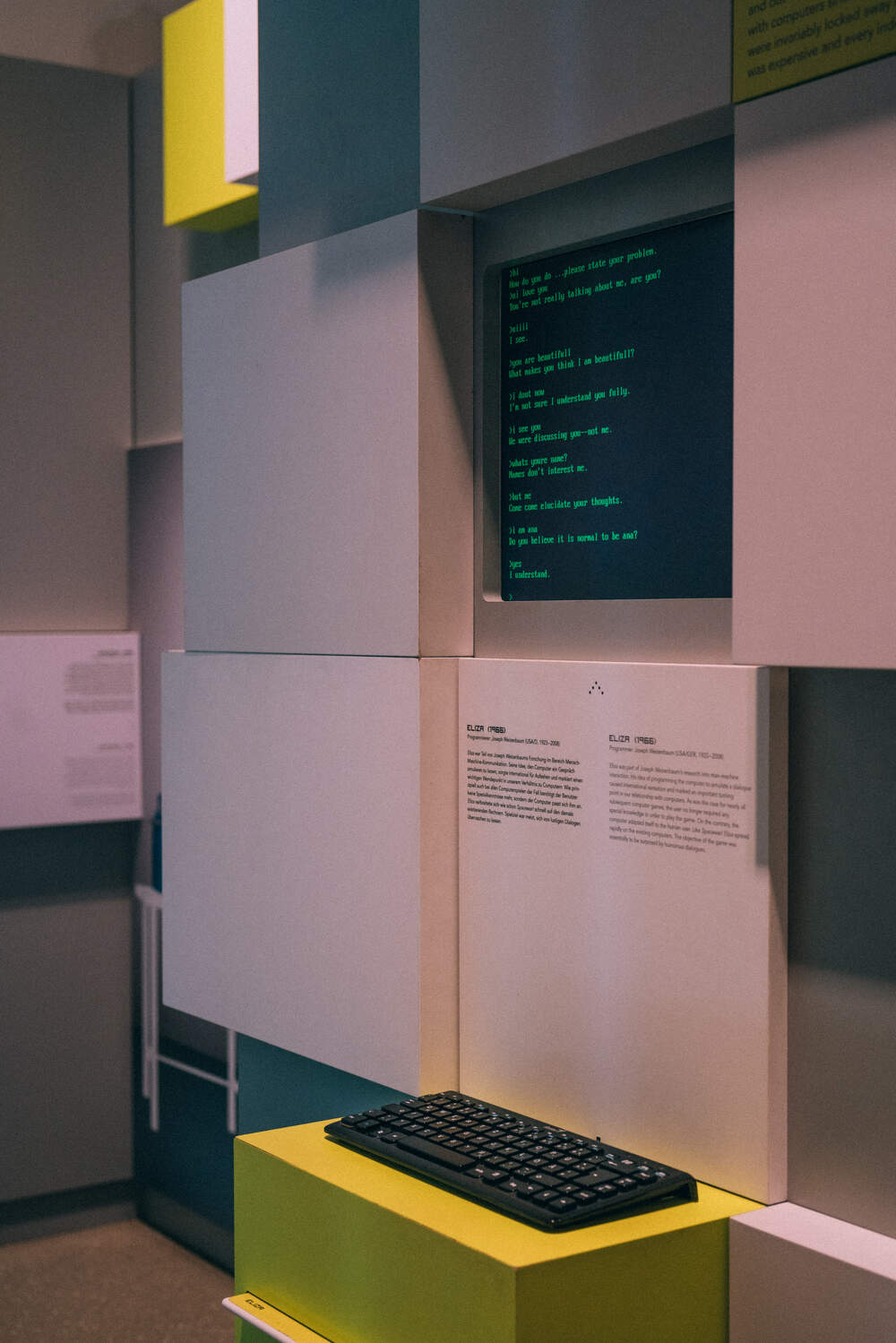
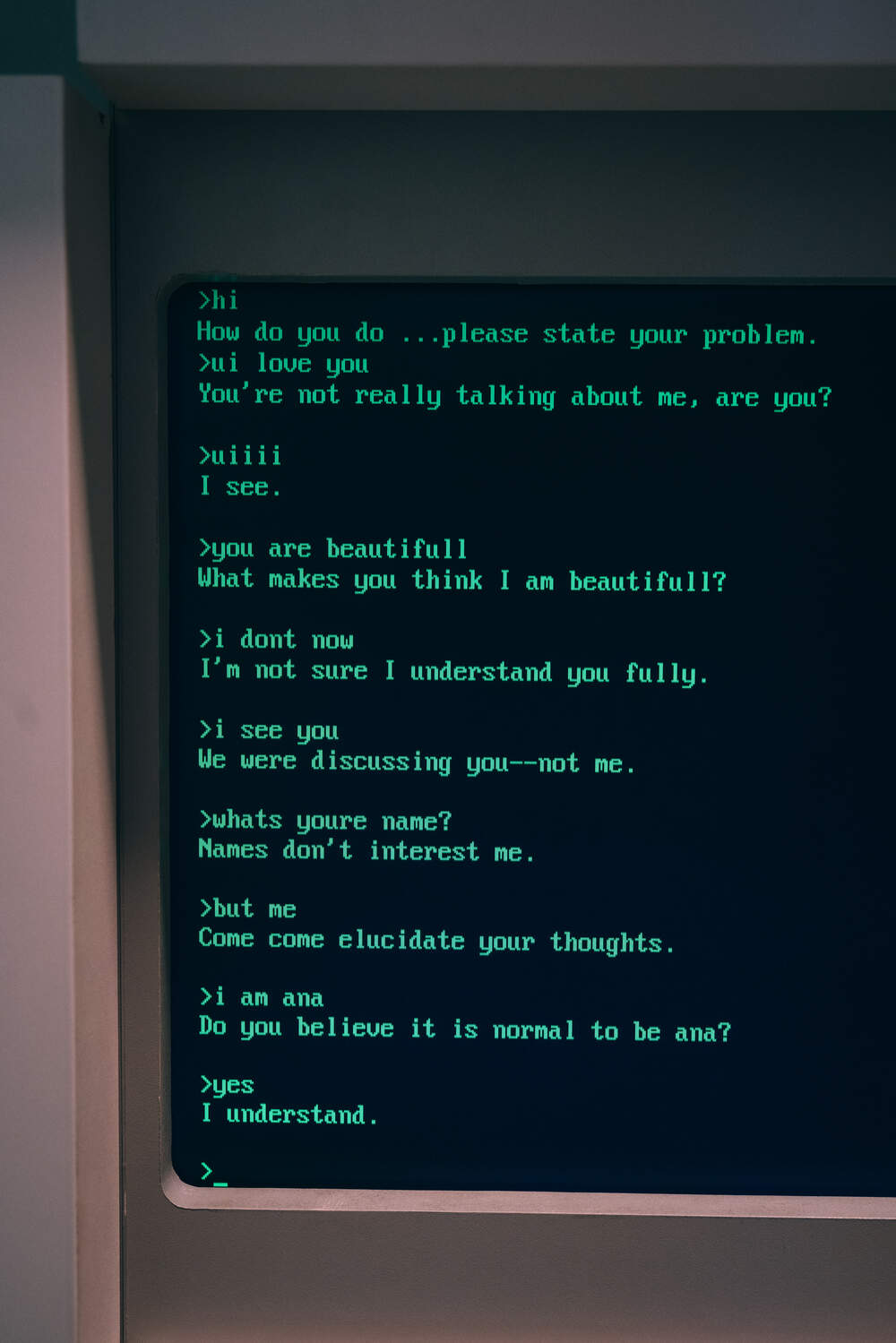
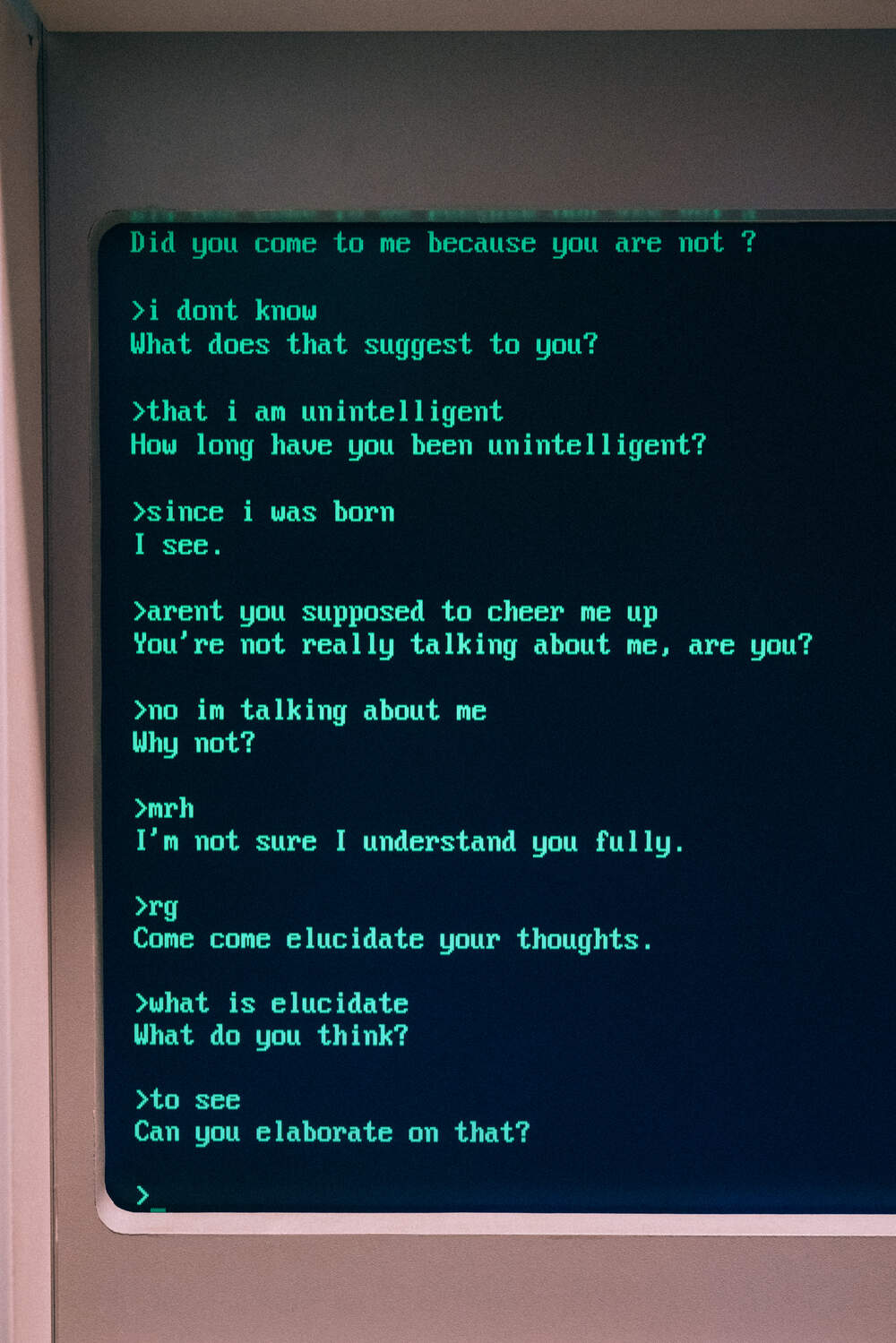
The museum also understood that videogames are just a small part of the larger history of gaming – see, for example, this postcard turn-by-turn game of chess:
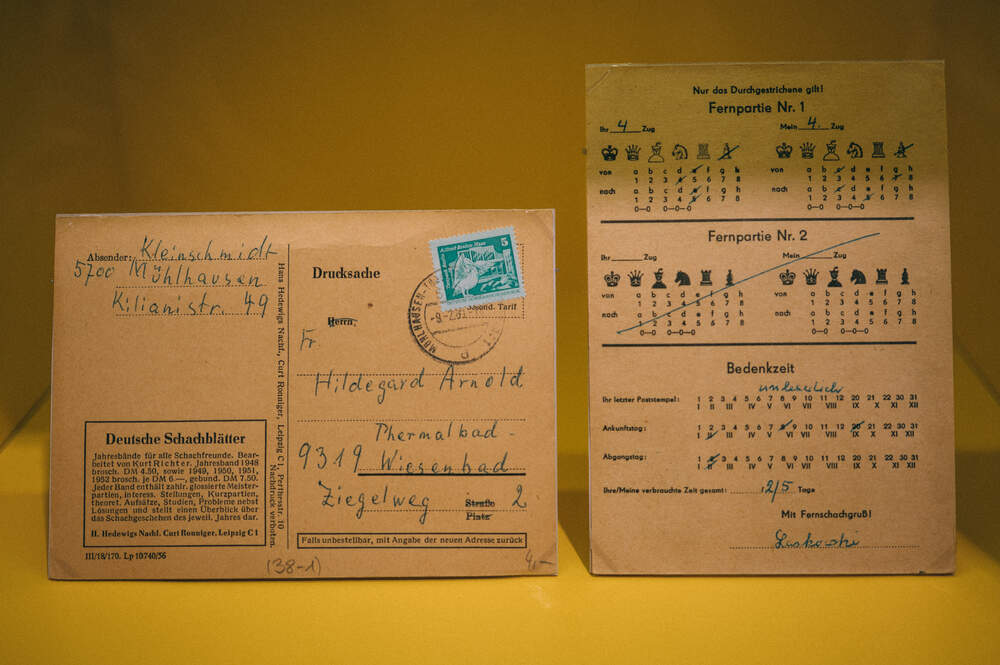
And then, there was also a goofy huge joystick you could even step on (remove your shoes first!) to play… YES. The Atari 2600 version of Pac-Man. Which was hilarious and PERFECT.
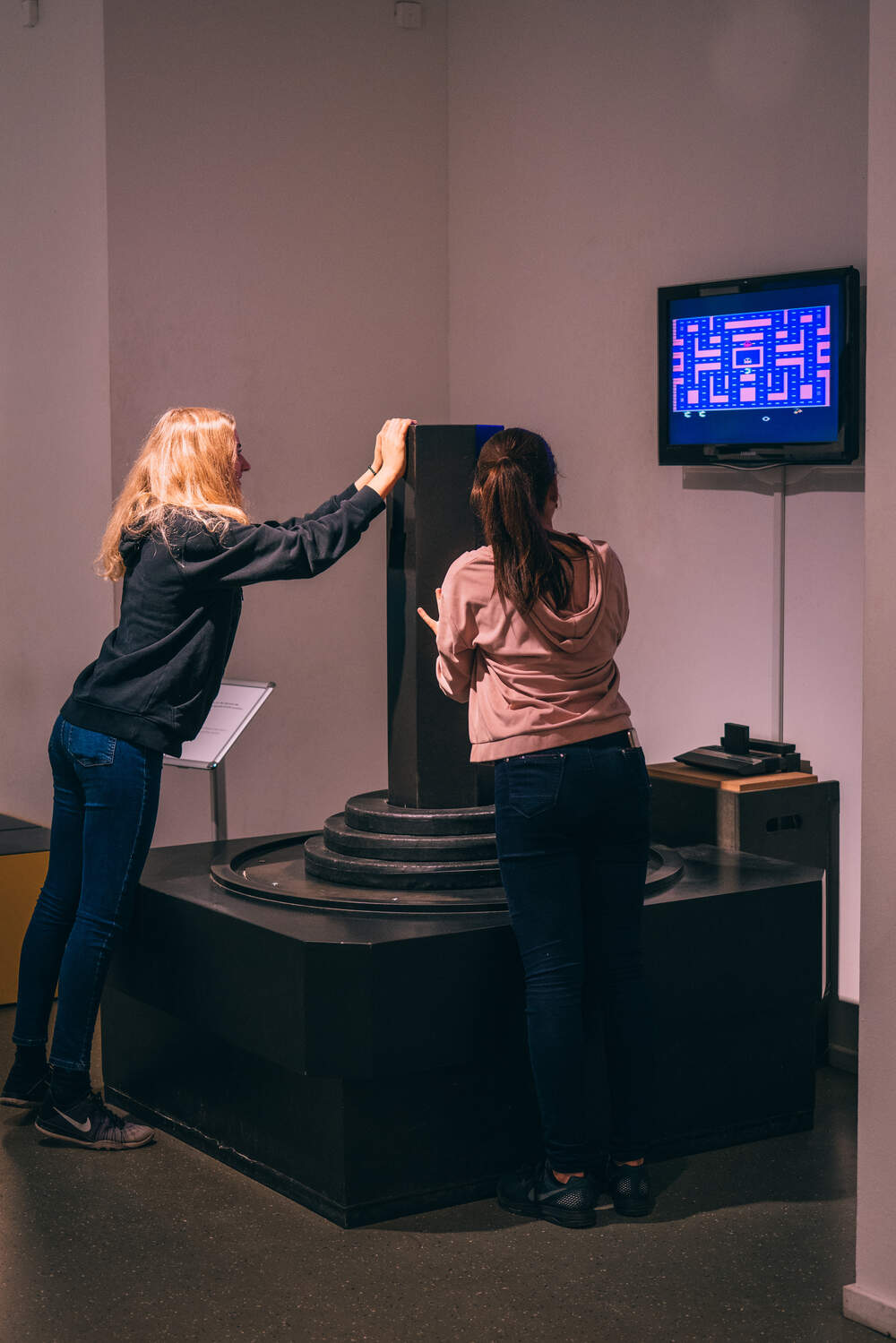
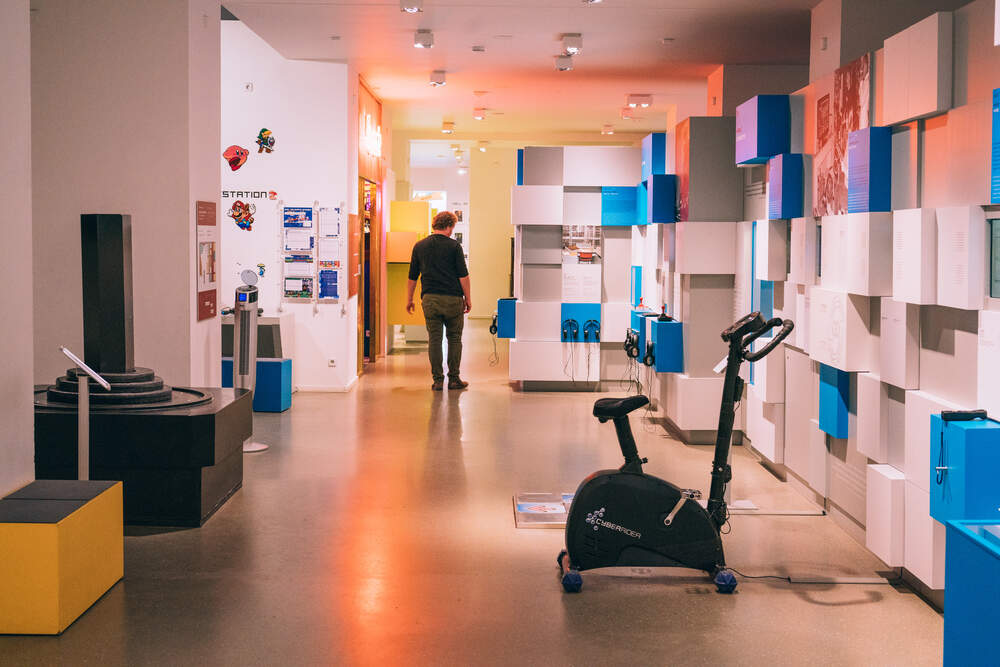
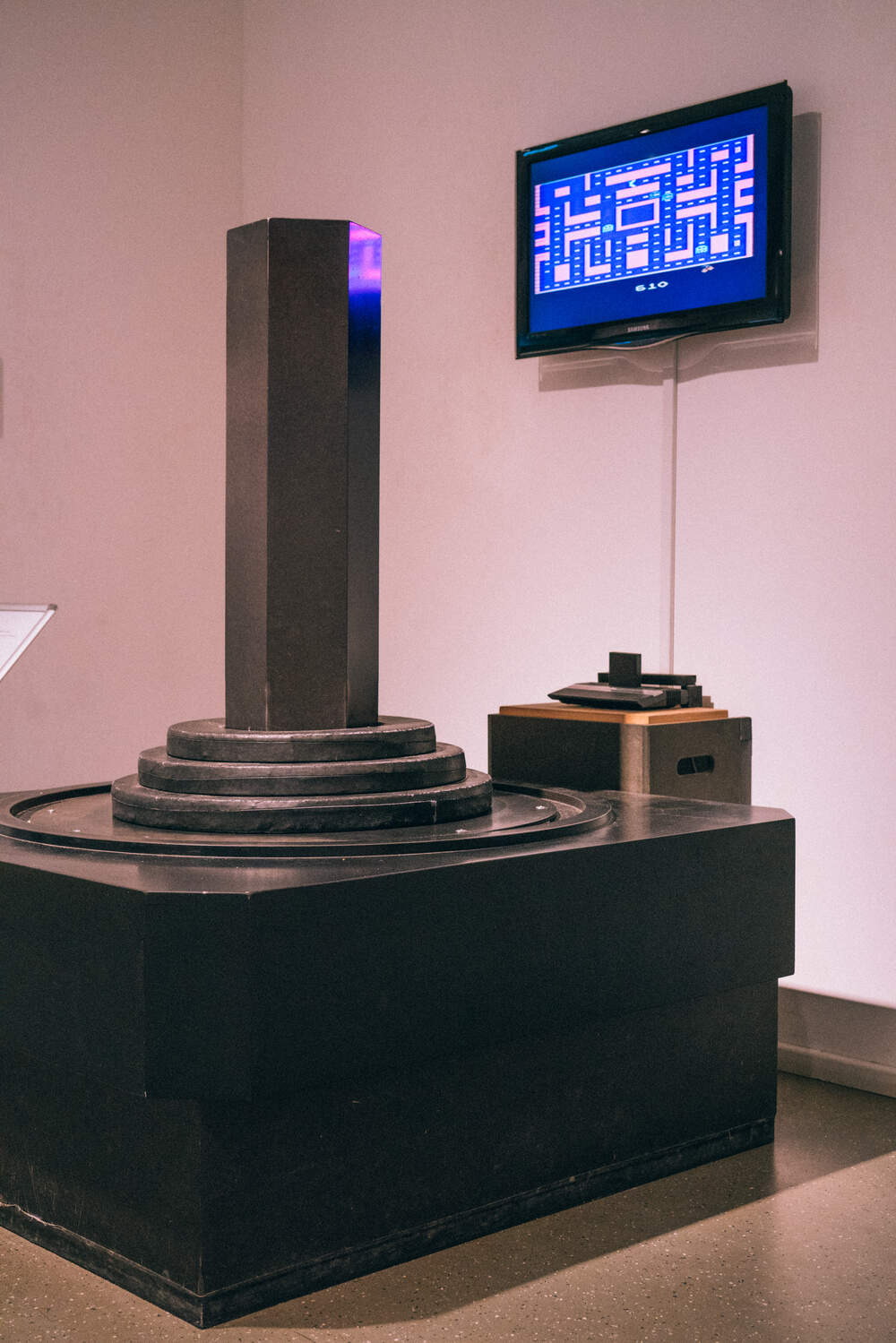
There were also nods to where we were, with German accents all around:
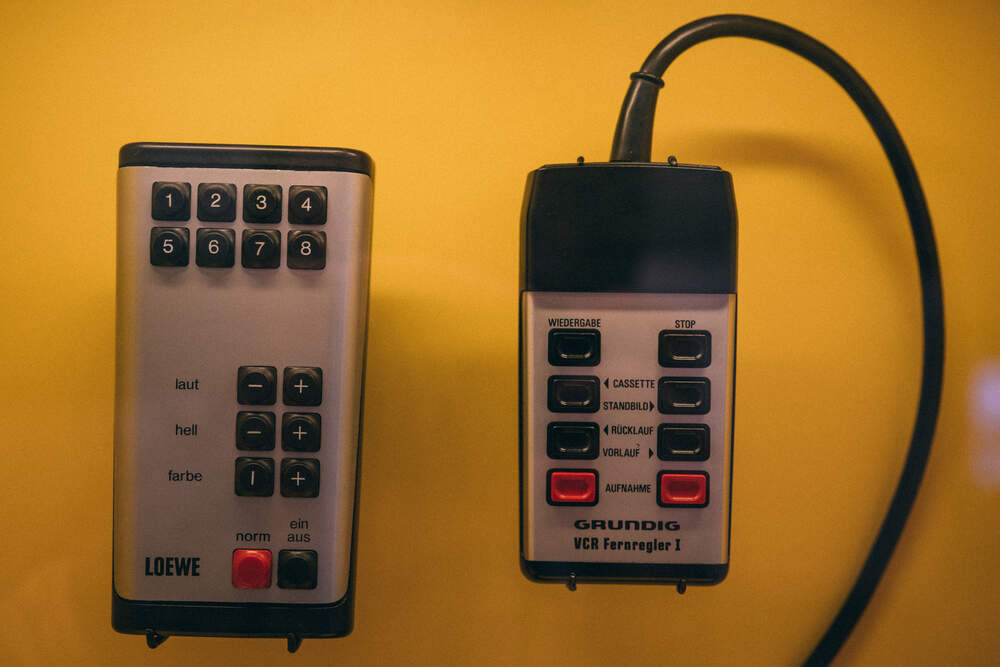
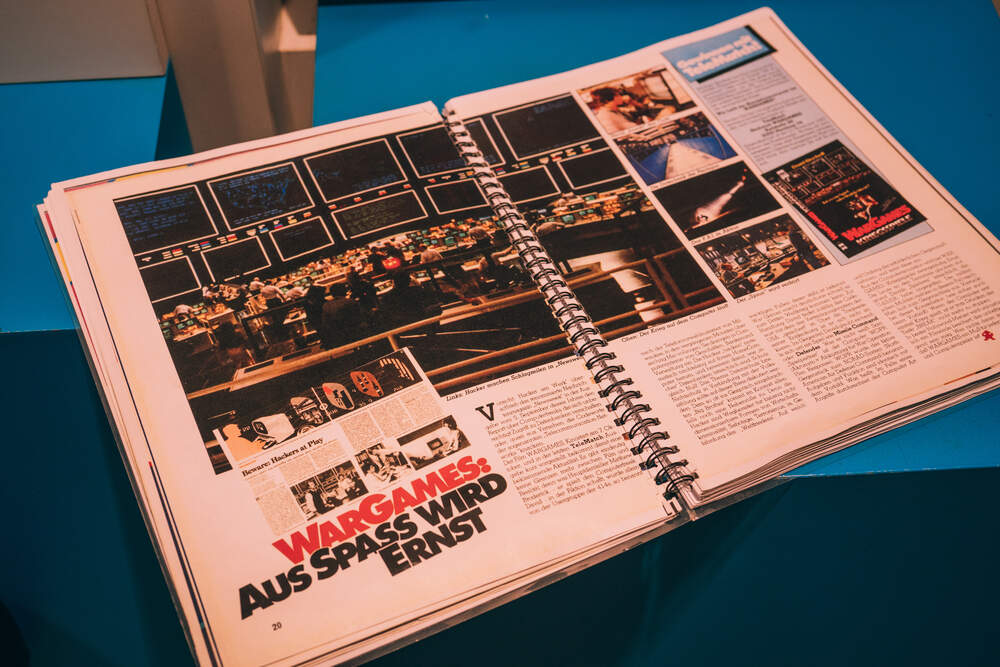
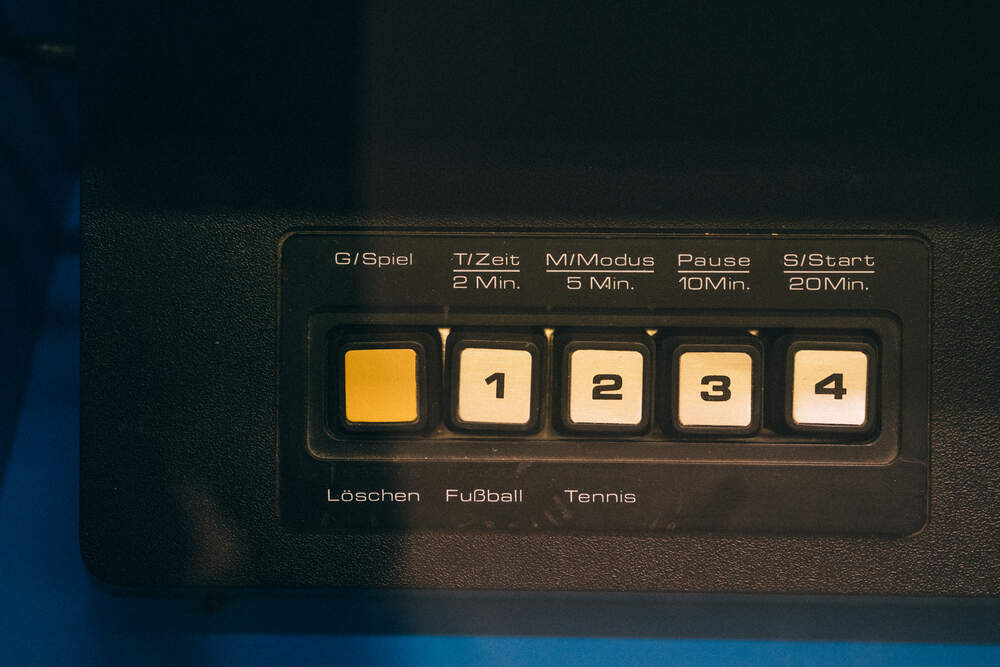
Not to mention Poly Play – “the first and only videogame machine produced in the former GDR.” Of course, you could also run with it.
Which I did.
Spoiler: It’s *really* bad.
Which I did.
Spoiler: It’s *really* bad.
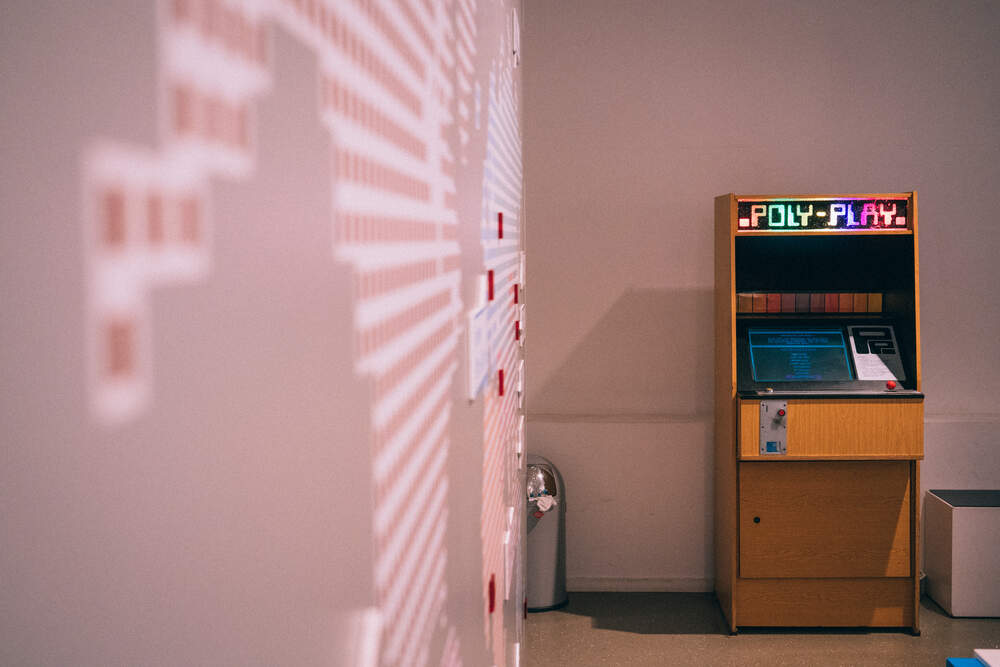
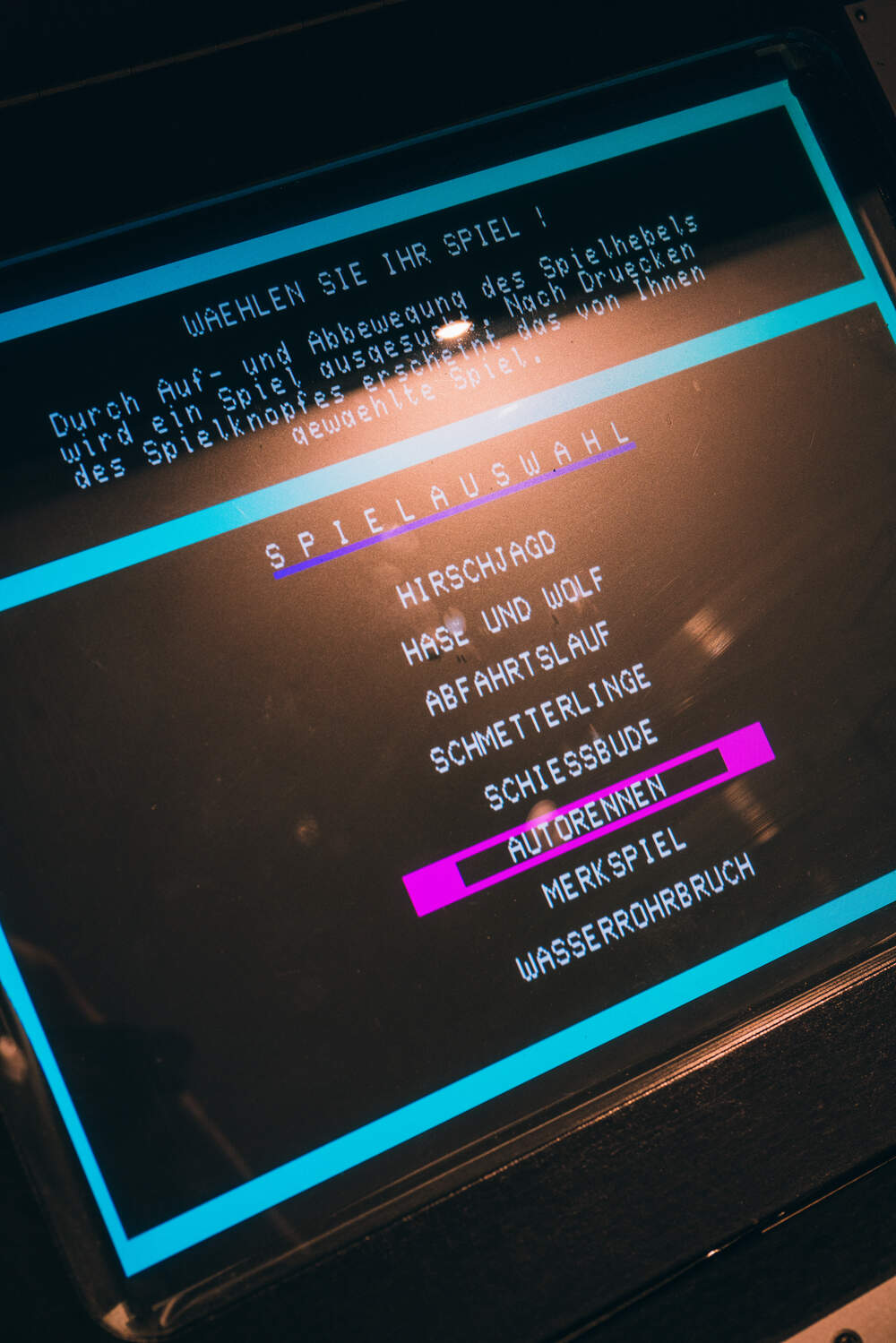
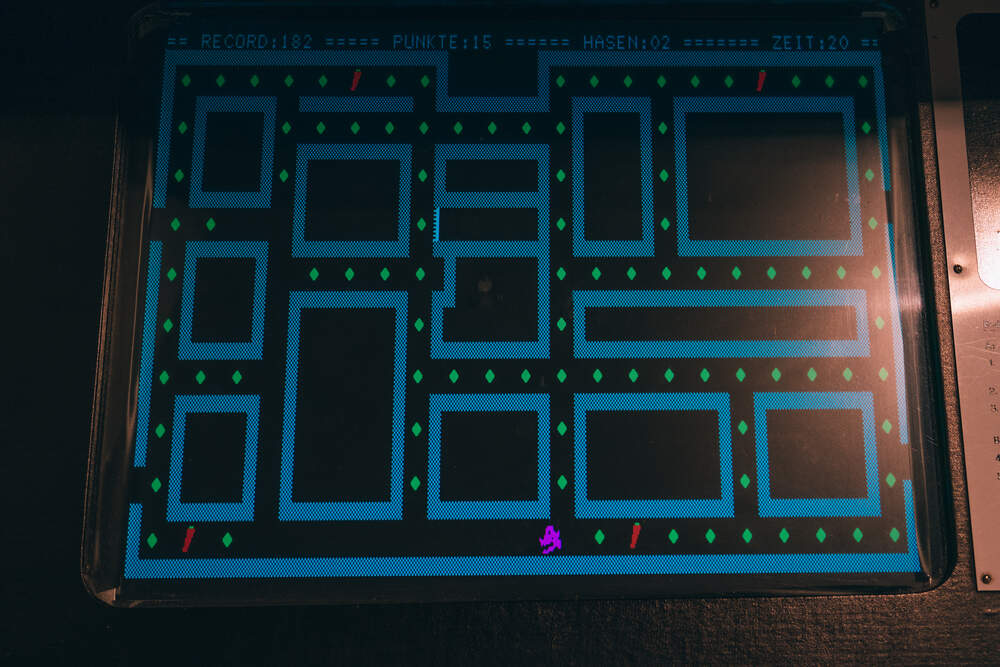
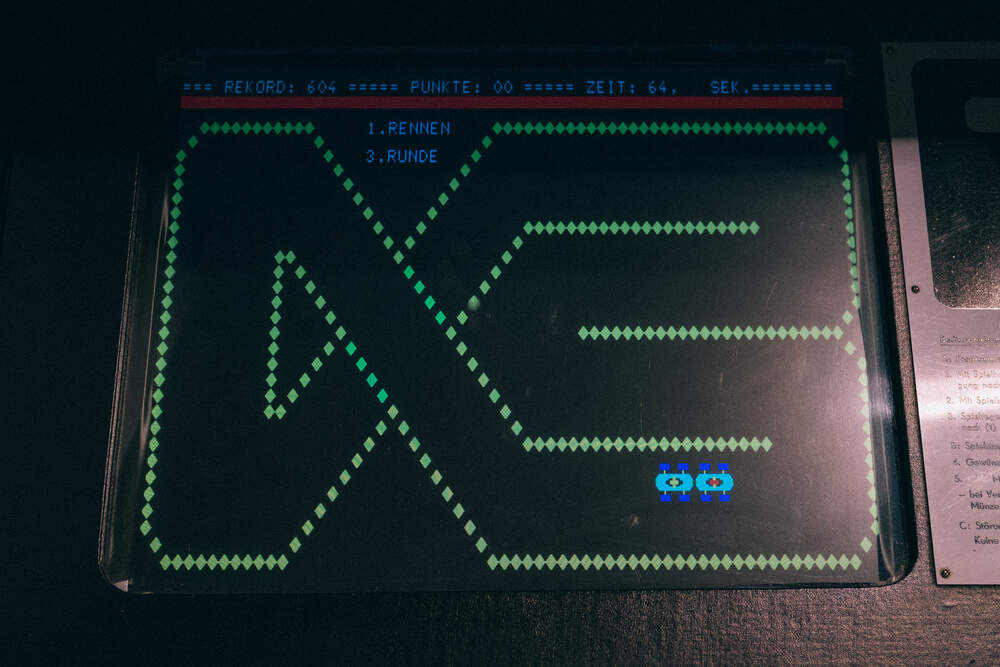
Or this early prototype of a driving game with a moving cabinet that was still working! (And actually scared me a bit, as it was much more articulated than I expected.)
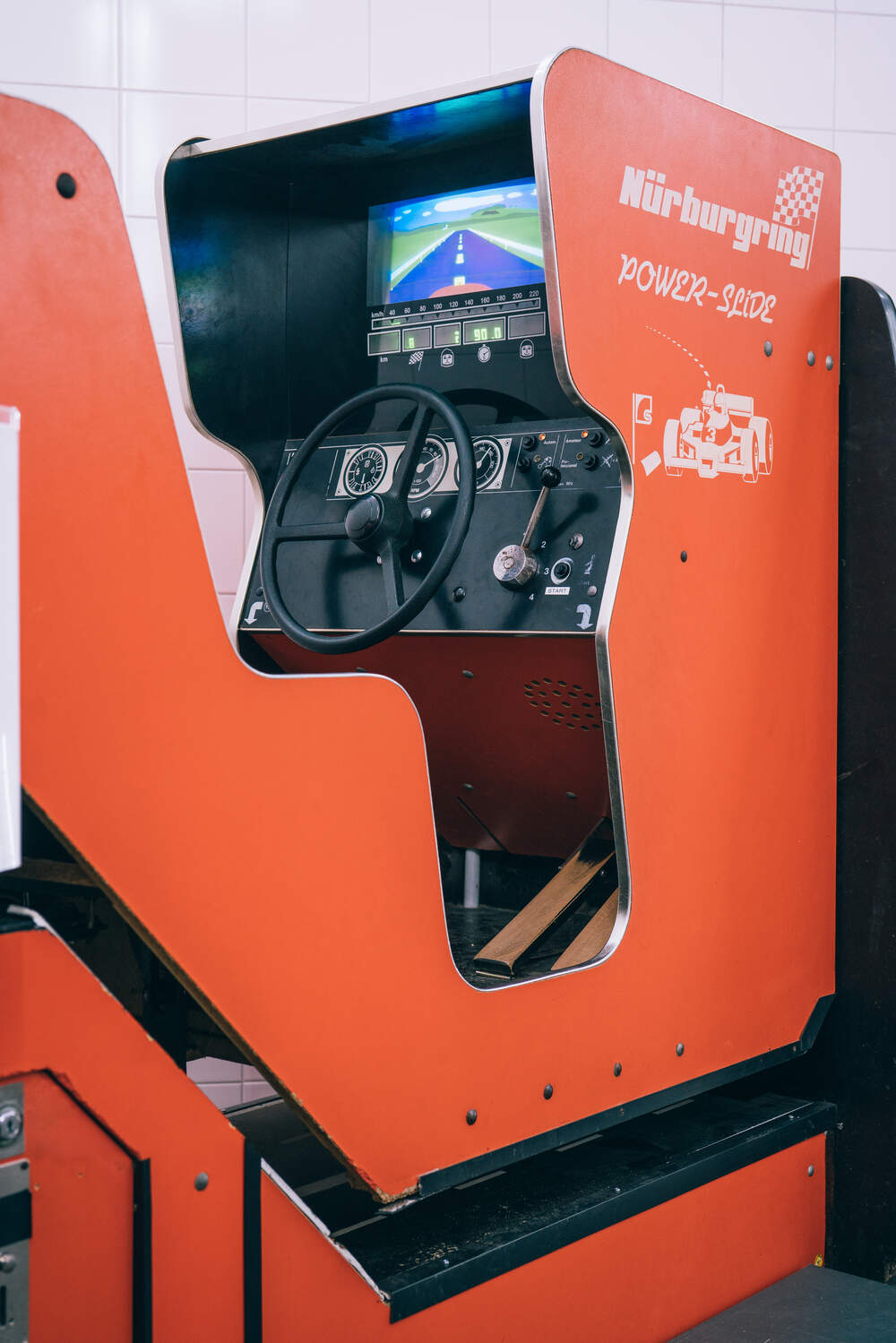
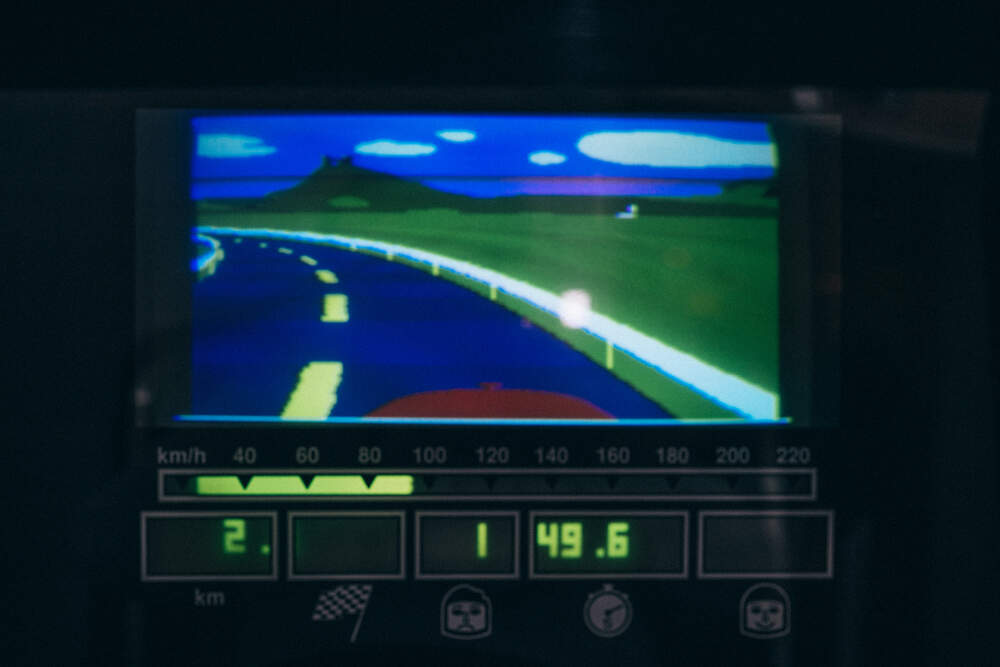
And speaking of playfulness with the UI: Many of the stations with simple information or videos were controlled using joysticks…
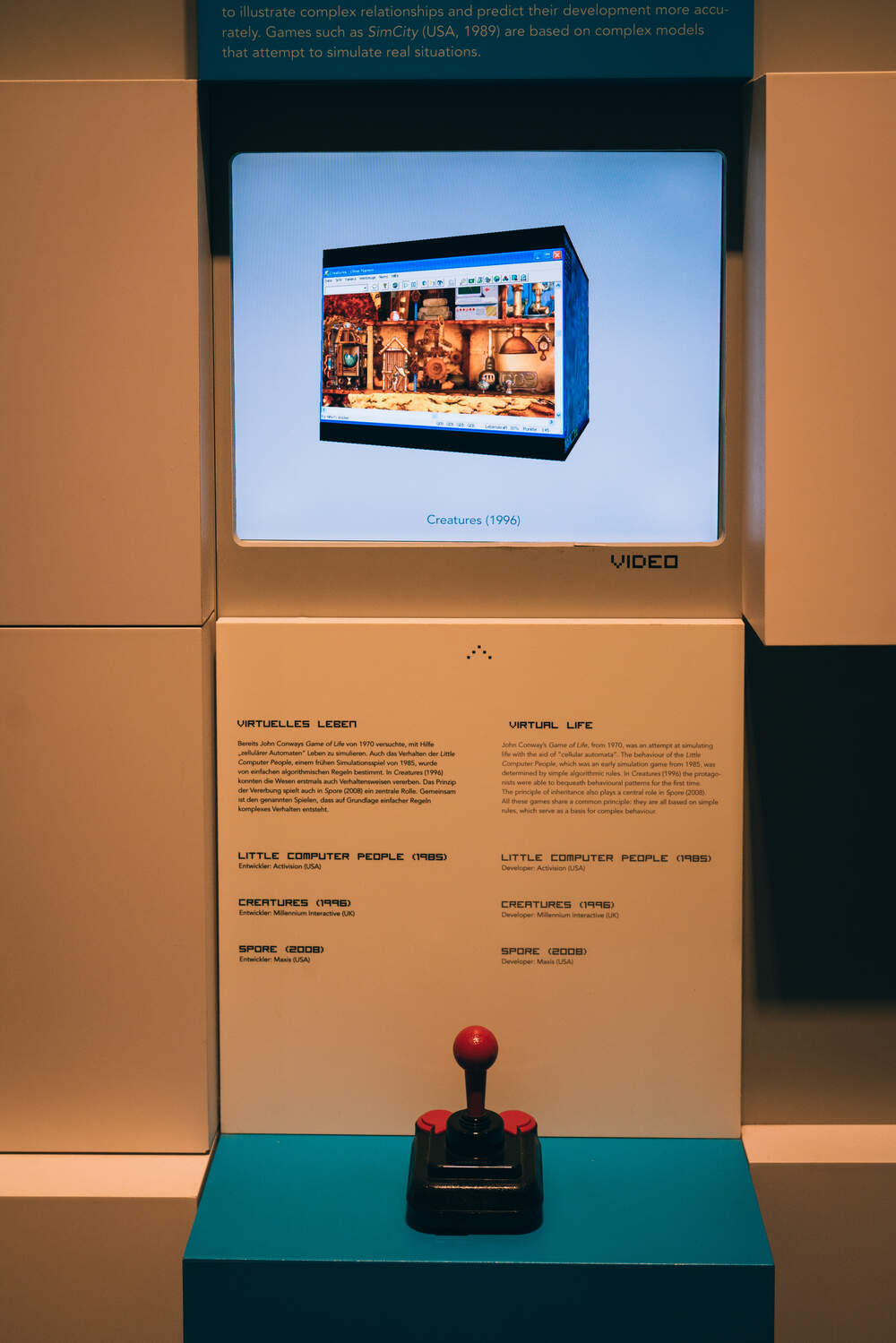
…and vice versa, many of the games were played using keyboards, an admission that was refreshing to see.
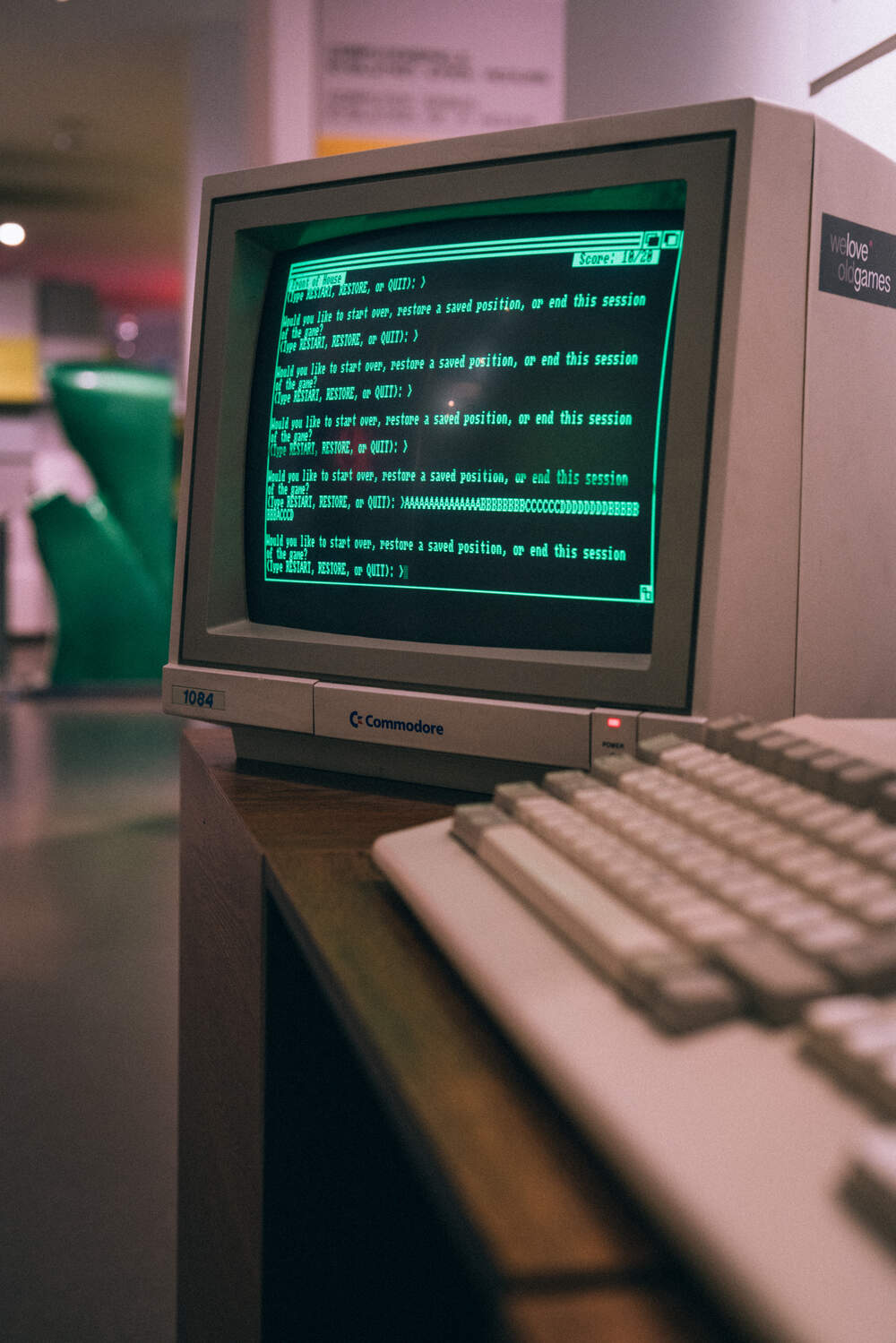
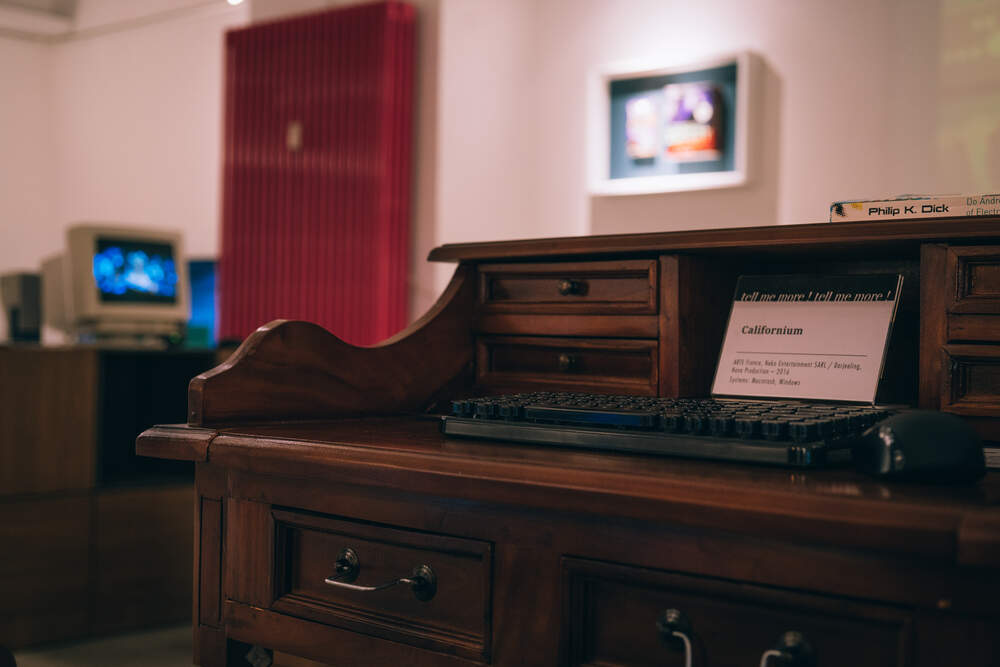
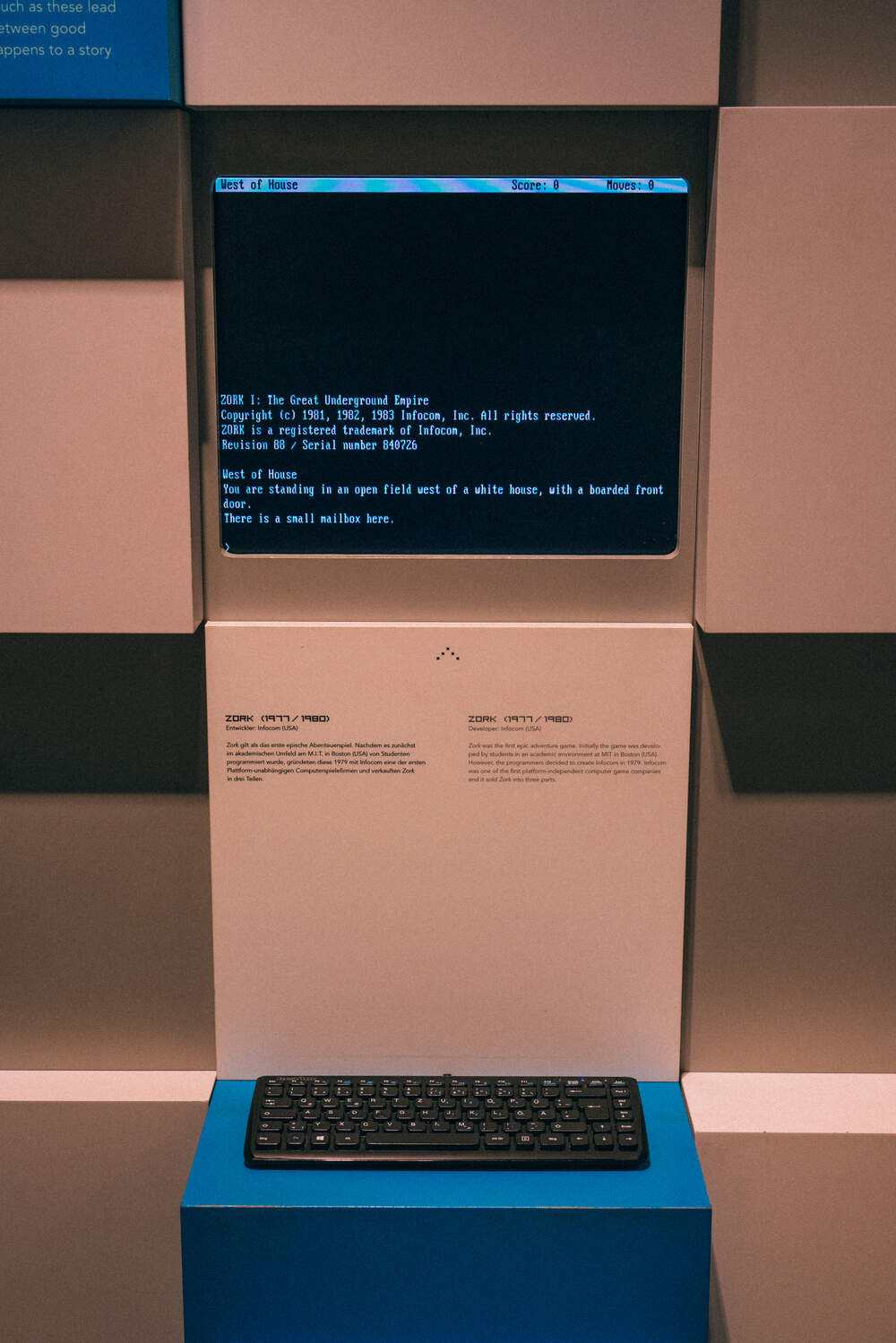
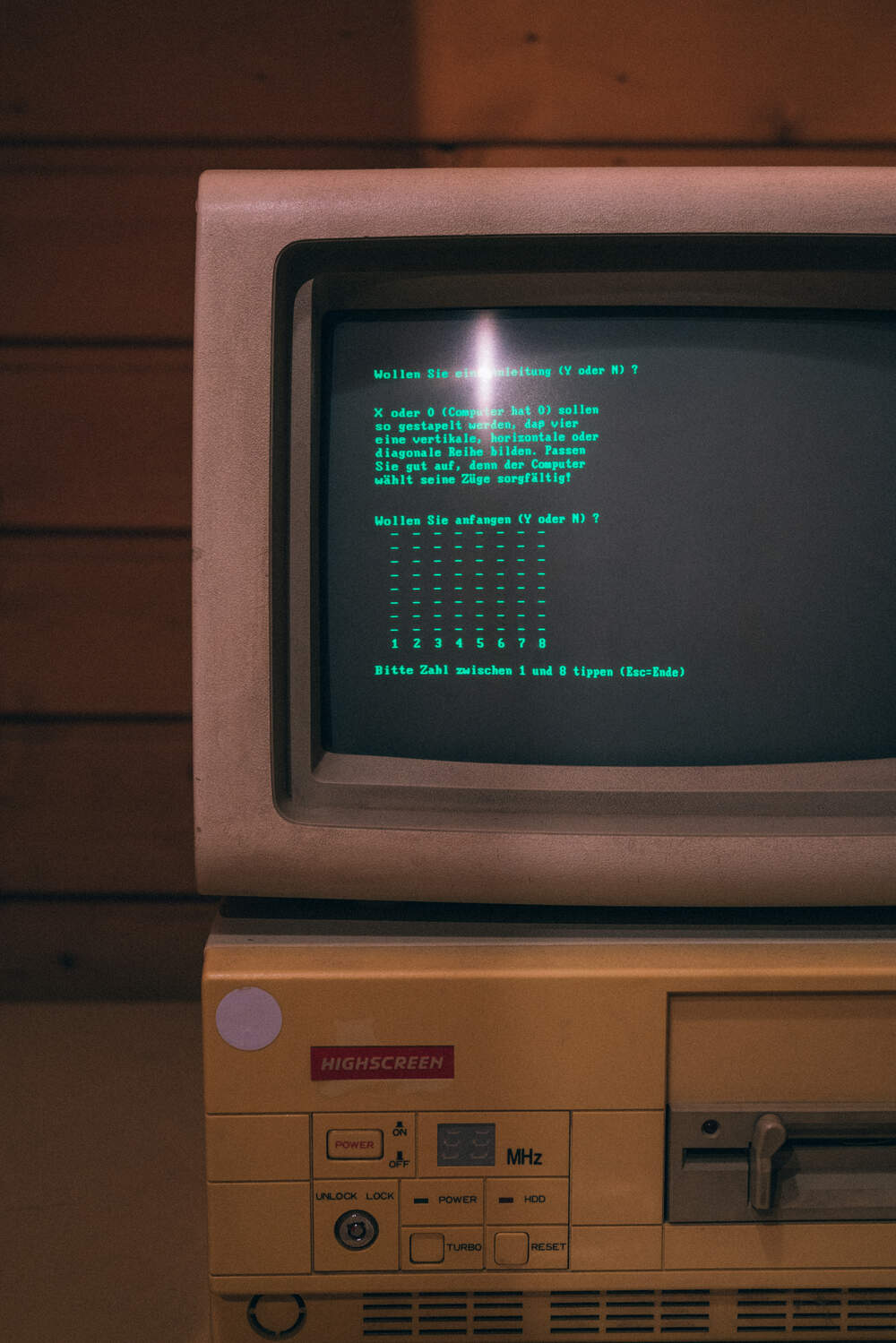
(Particularly right next to the abysmal Power Glove.)

Overall, I was so impressed with the amount of respect and effort dedicated to the universe of gaming.
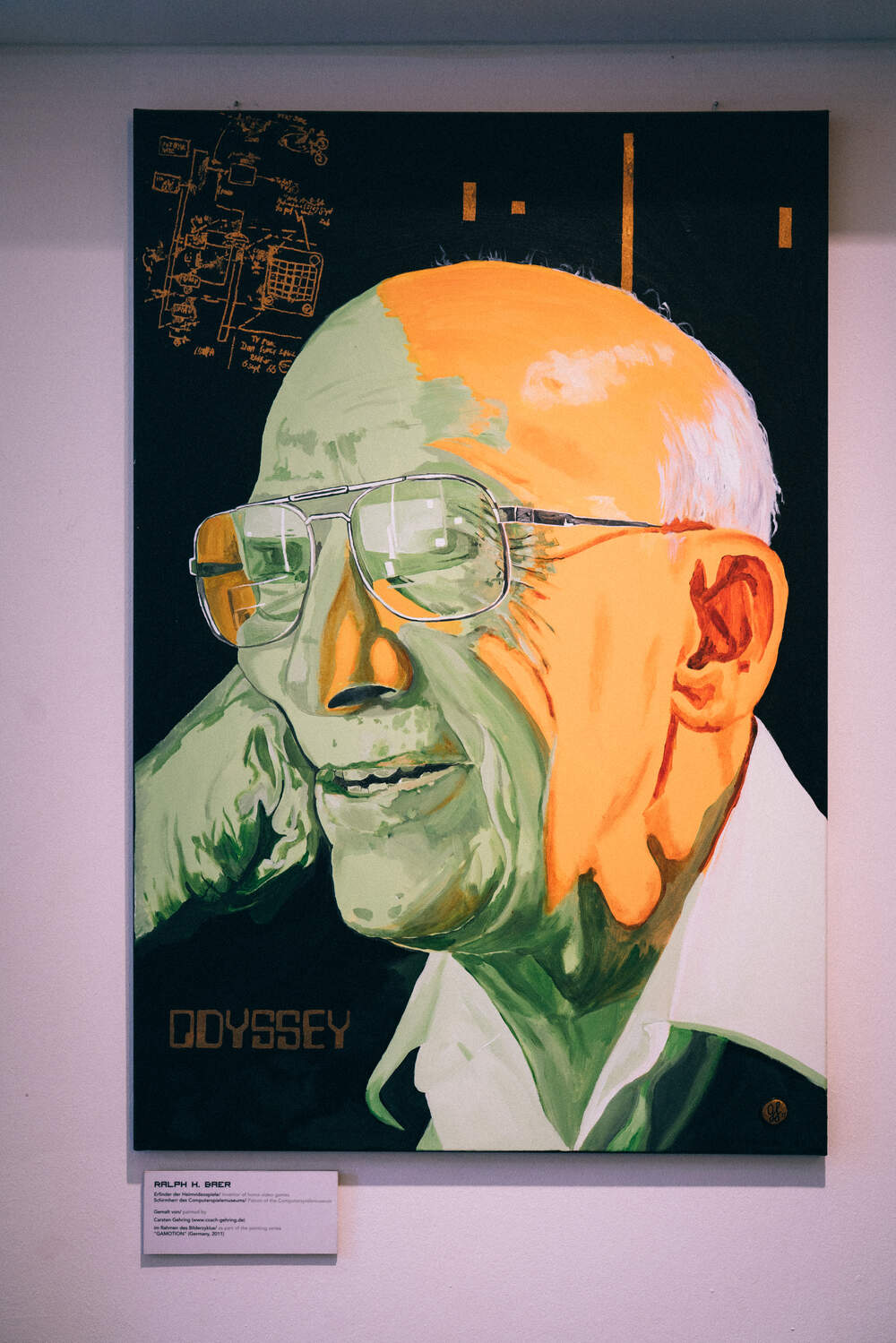
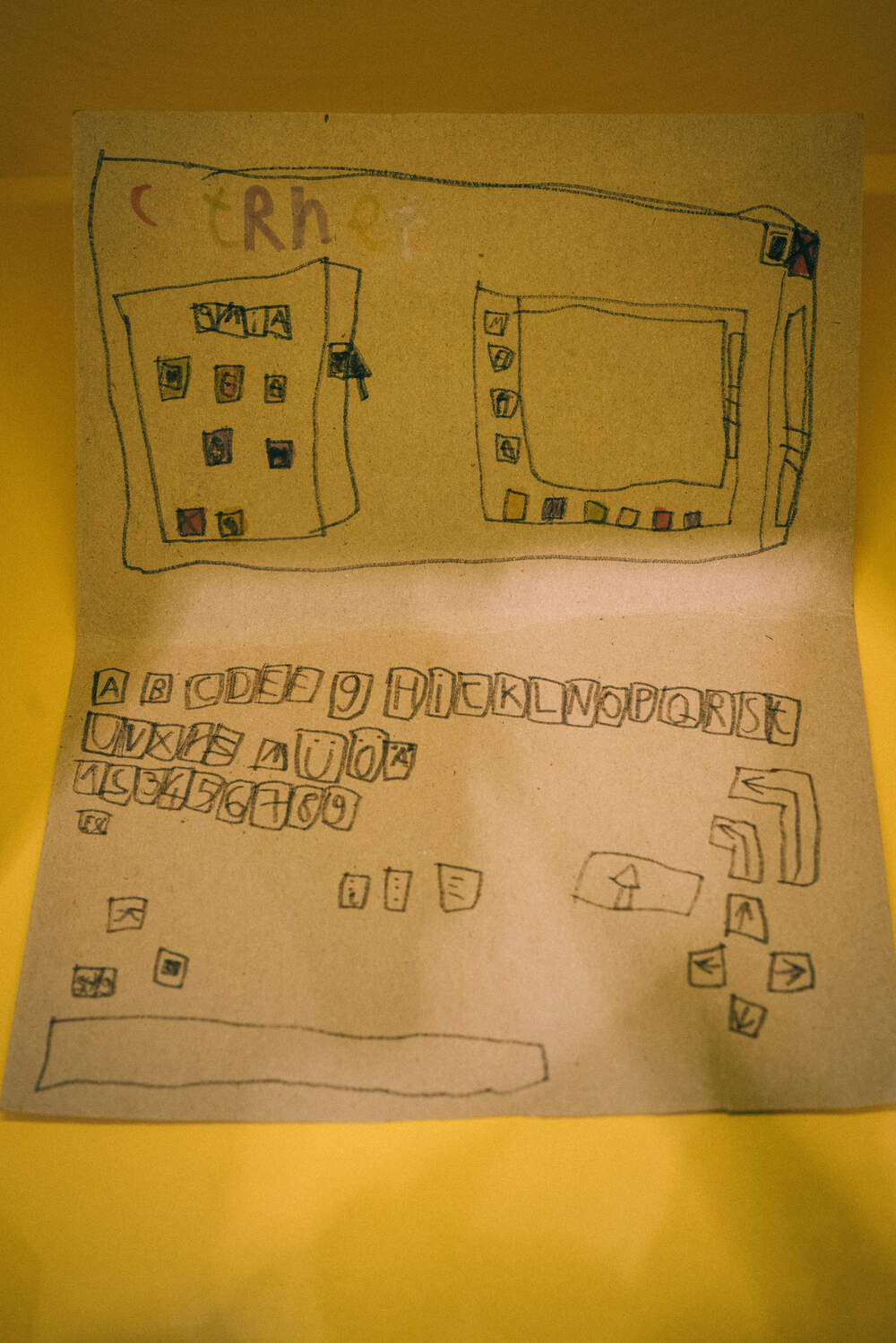
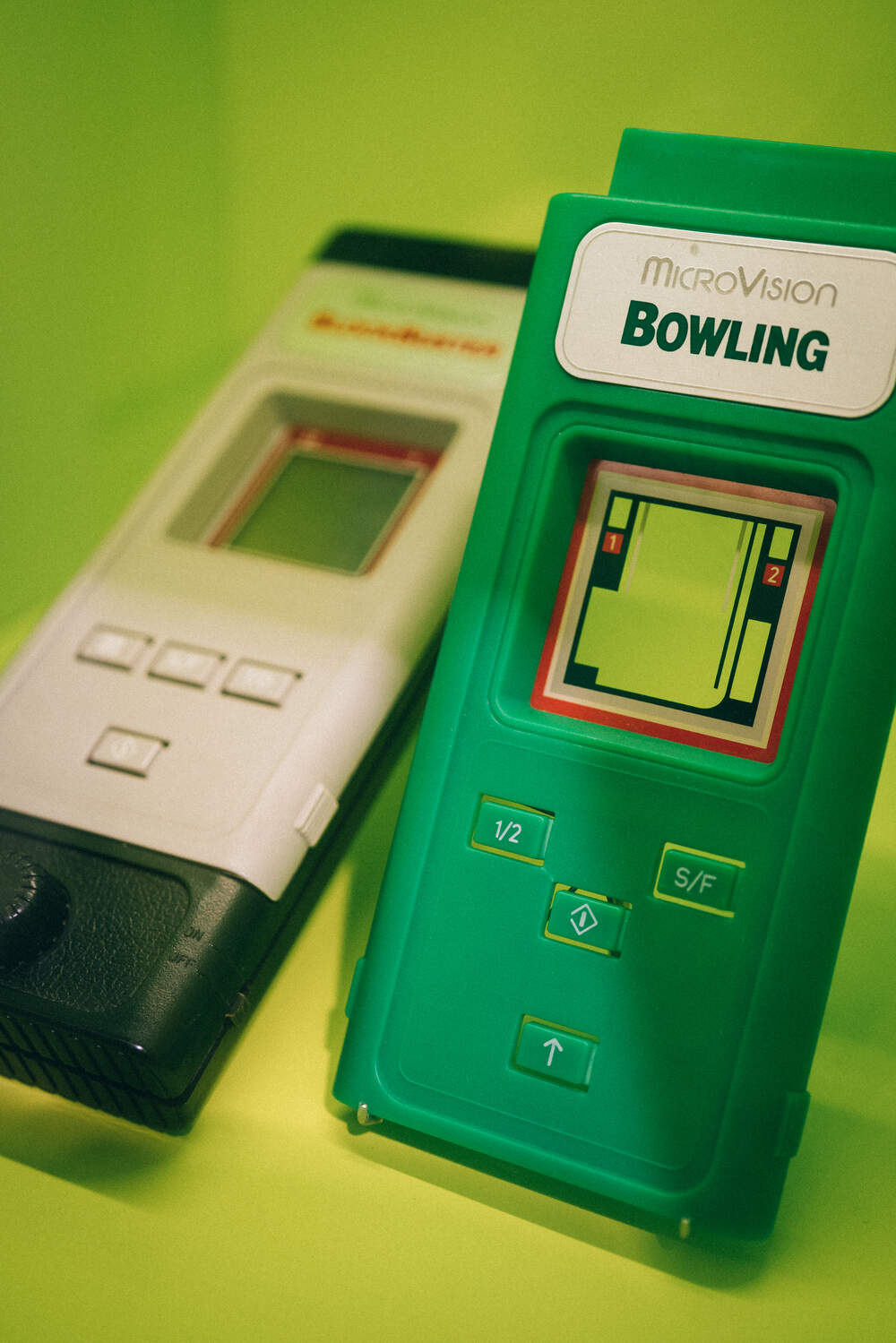
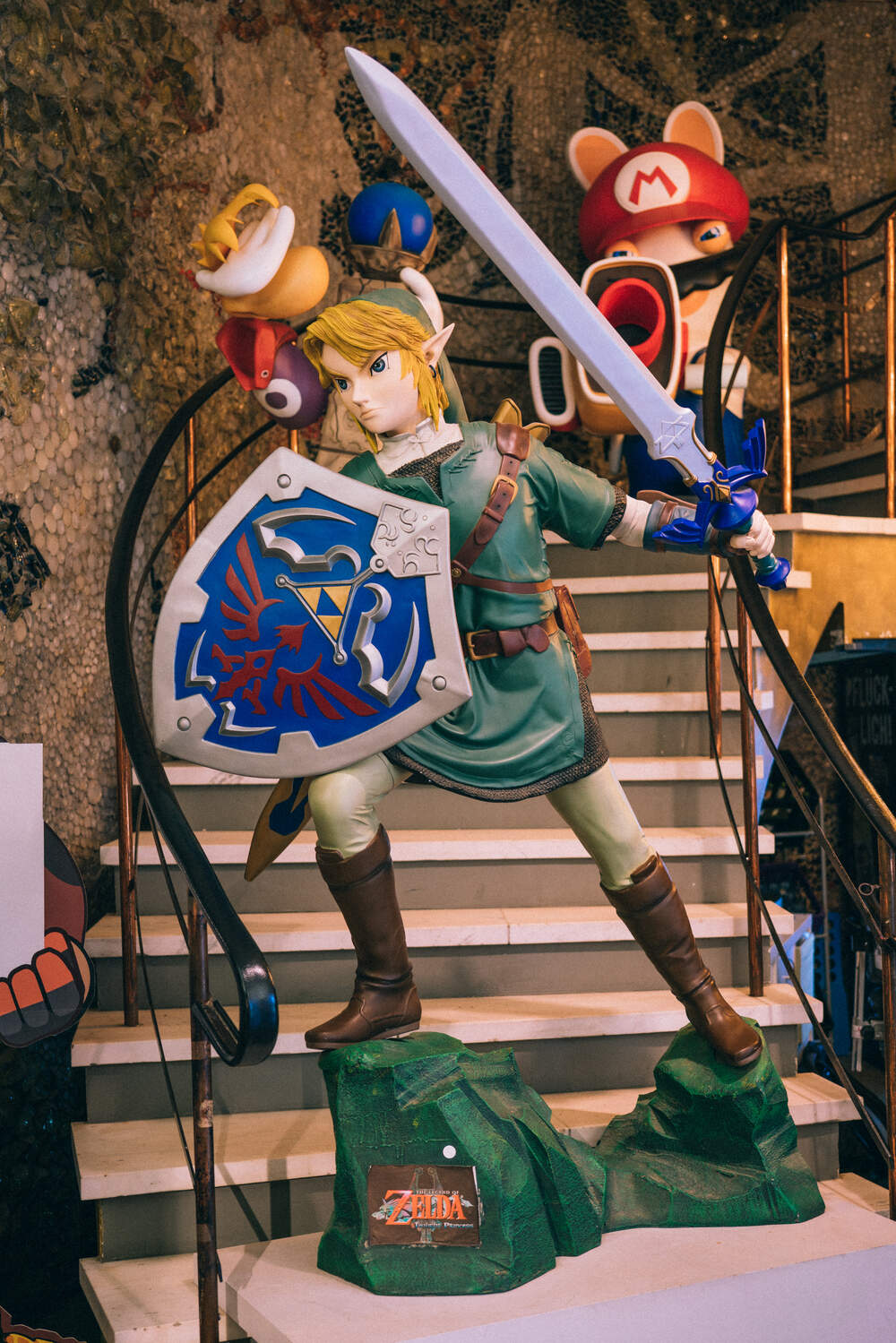
Sure, you could come and spend an hour just having fun, but it wasn’t very hard to look around and gain something more: a profound appreciation for videogames as a whole.
There was so much creativity here, and many museums could learn from that.
Whether you’re a museum, or just a regular human being: check it out if you’re ever in Berlin!
Computer Spiele Museum
Whether you’re a museum, or just a regular human being: check it out if you’re ever in Berlin!
Computer Spiele Museum